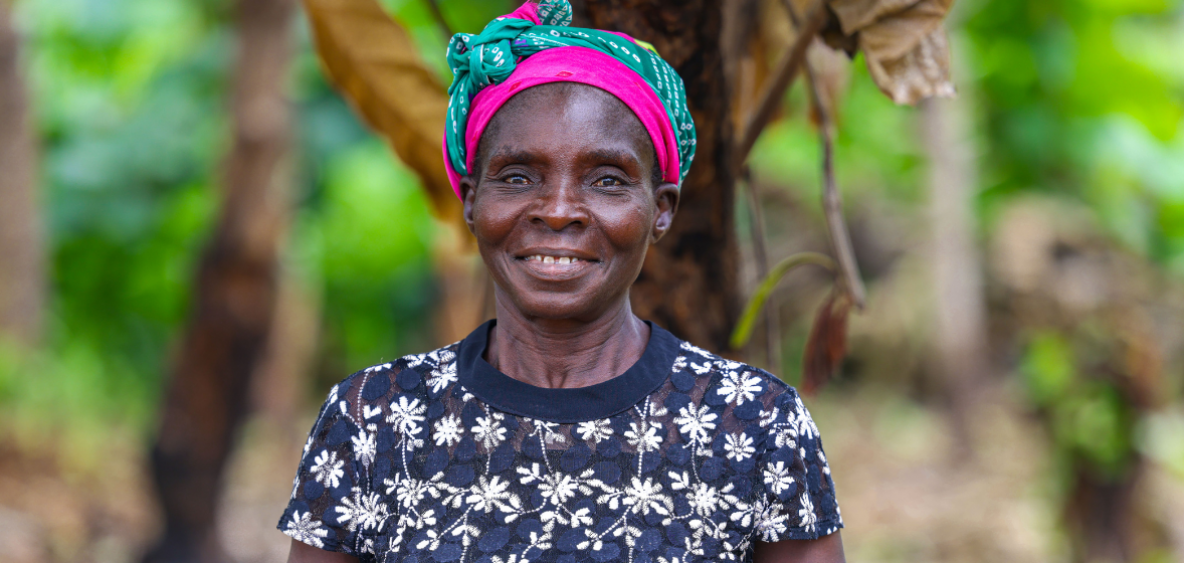
This piece was originally published by UNDP Nigeria.
Nigeria's agricultural system is mostly rainfed, making it highly unsustainable and extremely vulnerable to climate change. Climate-related threats like the recent extended dry seasons, floods, and soil degradation are more common and severe, posing a serious threat to agricultural livelihoods and food security. High poverty rates, water scarcity, shrinking land sizes, inadequate market access, and high population growth coupled with rising food demand exacerbate these threats.
According to the Intergovernmental Panel on Climate Change (IPCC 2022) report, over 3 billion people are highly vulnerable to climate change with Africa and small Islands, in particular, facing relatively severe climate challenges. In most parts of the continent, Nigeria included, agricultural productivity has over the past 50 years significantly reduced by about 34 per cent due to climate change, compared to other regions. While food security is foundational and catalytic to transformational development for communities across the continent, the deteriorating climatic conditions are rapidly narrowing the window of opportunity to enable climate-resilient food production despite the investment in climate-smart agriculture.
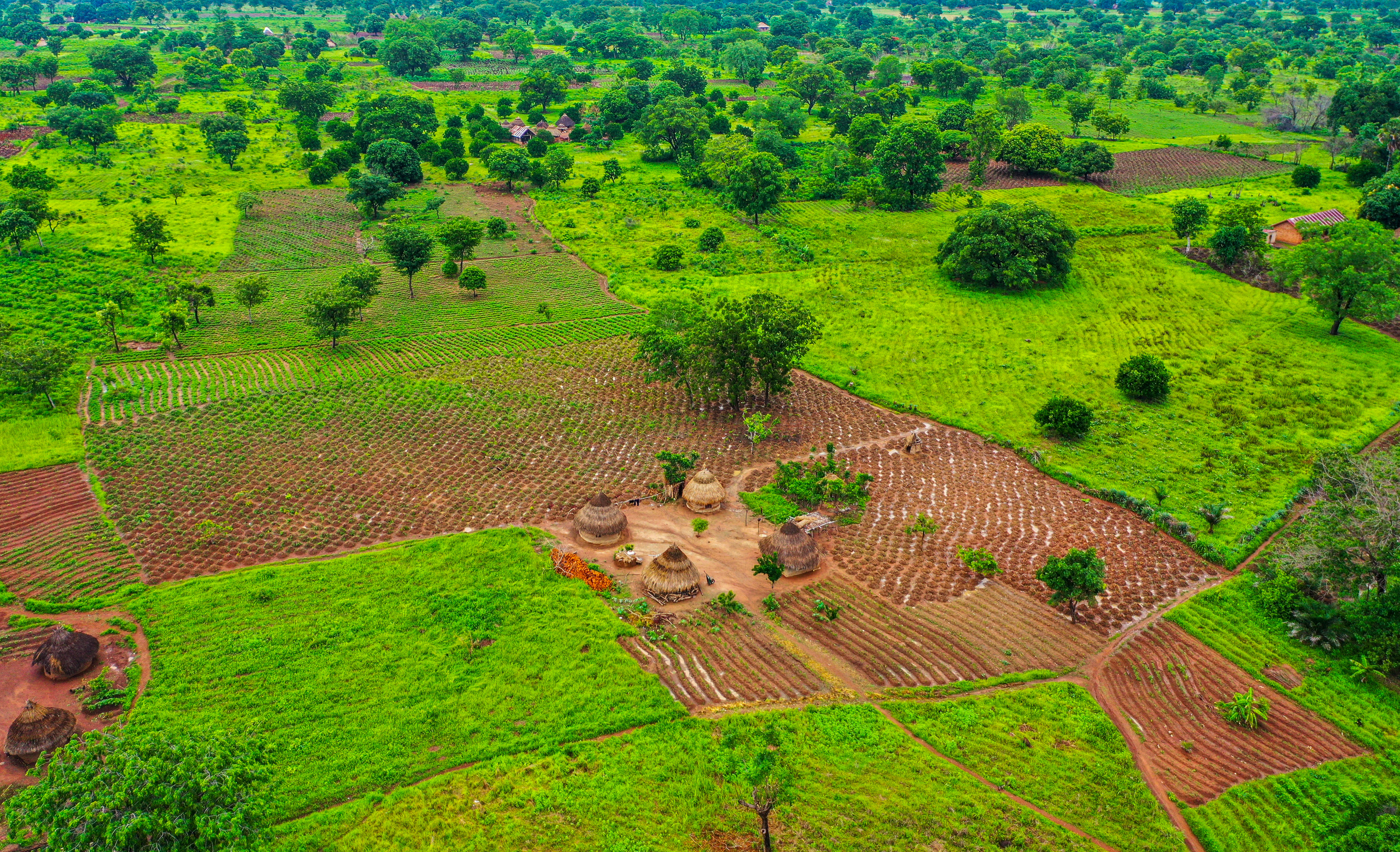
The rapid acceleration of climate change presents the biggest existential threat to food production and increased market volatility, making access to basic food commodities impossible for the majority. Farmers in Nigeria are struggling with poor yields due to a lack of suitable farming inputs such as seeds and fertilizers, insufficient irrigation techniques and harvesting and post-harvest methodologies, which hamper their overall productivity and climate adaptability. By rethinking approaches to farming, Nigeria can potentially invest better and protect agricultural communities while safeguarding livelihoods that have been passed on to generations and sustainably create a resilient food production sector.
In the Northern and Middle Belt of Nigeria, the United Nations Development Programme (UNDP) and the Global Environment Facility (GEF), with support from the Federal Ministry of Agriculture and Rural Development (FMARD), are working to improve local farming capacities and techniques of smallholder farmers by providing access to viable farming inputs, climate-smart agricultural practices, and enhancing agriculture as a feasible socio-economic opportunity for sustainable livelihoods and rural employment for vulnerable farmers, women, and youth in each region.
The Food Security project is not only helping farmers build their resilience in the face of the persisting disproportionate impacts of climate change but also aims to tackle food insecurity by strengthening communities’ ability to address the challenges of extreme weather and climate-related factors that are jeopardizing the sustainability of food production systems.
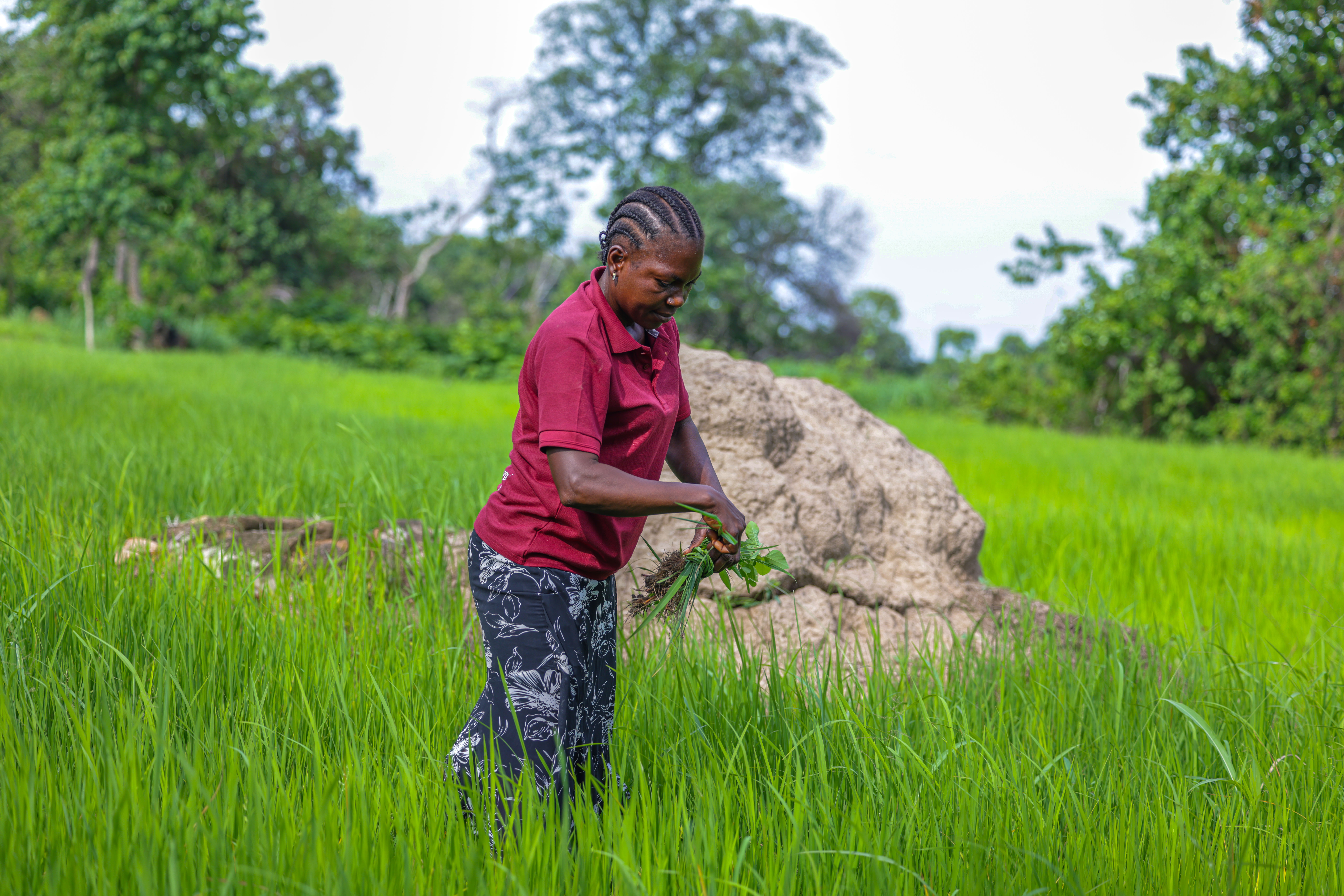
Harvest has been bountiful in the last four years for Amor Kershima, a farmer in Benue State who proudly cultivates groundnuts, rice, maize, sugar cane and pepper. He has one explanation for the increase in his crop yields, the planting technique training he received from the UNDP and the GEF when they visited his community in 2019. The dry season farming, and compost production training has made significant impact in Amor’s life, helping him to increase his yields which in turn has helped him to better provide for his family.
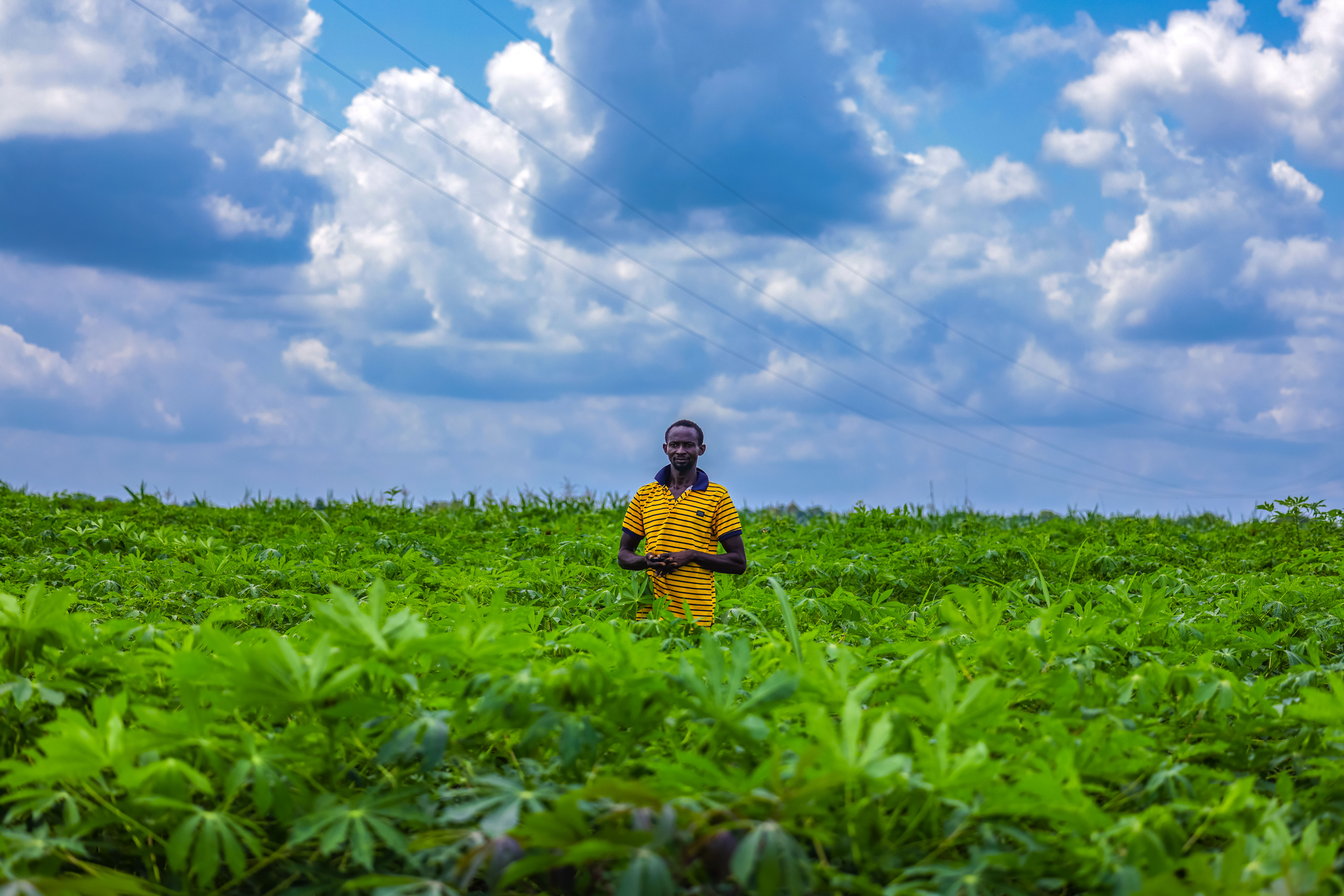
“The outcome has been tremendous. The proceeds from the farming in 2021 has enabled me to begin expansion of my family home, pay my children's school fees, and purchase new farming equipment” he shared. “This support has helped me to double my cassava and maize harvest which has made a big difference in my life”.
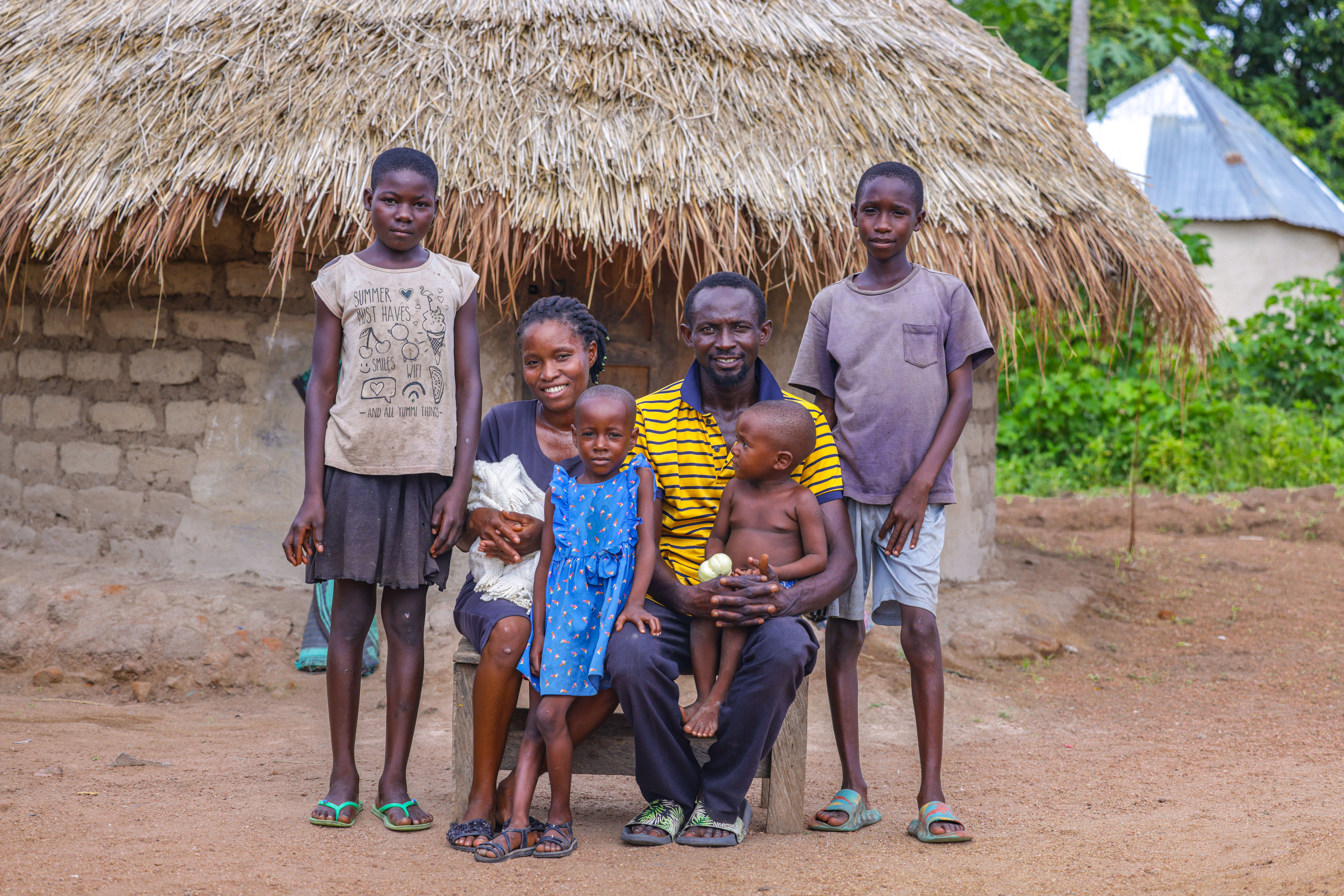
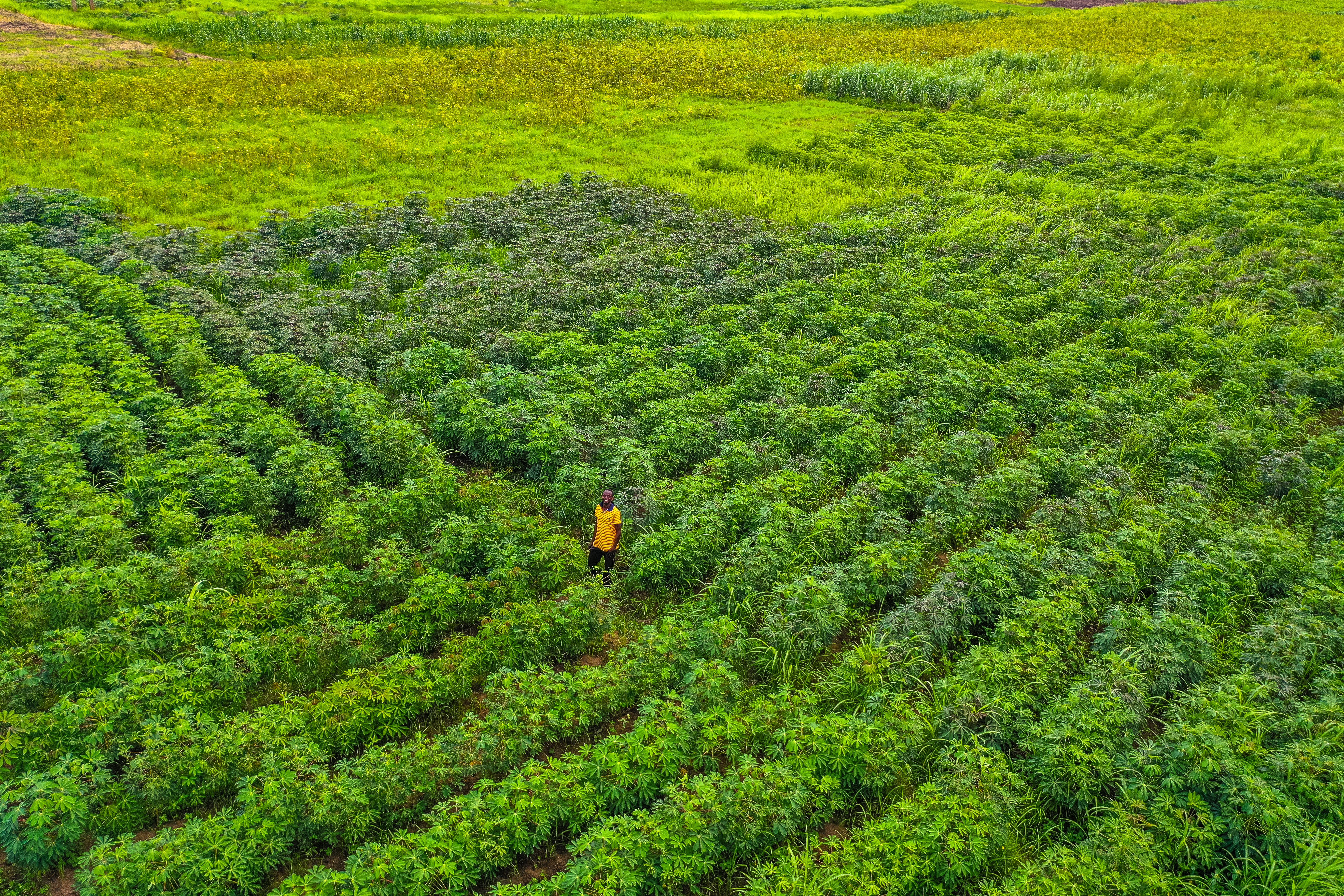
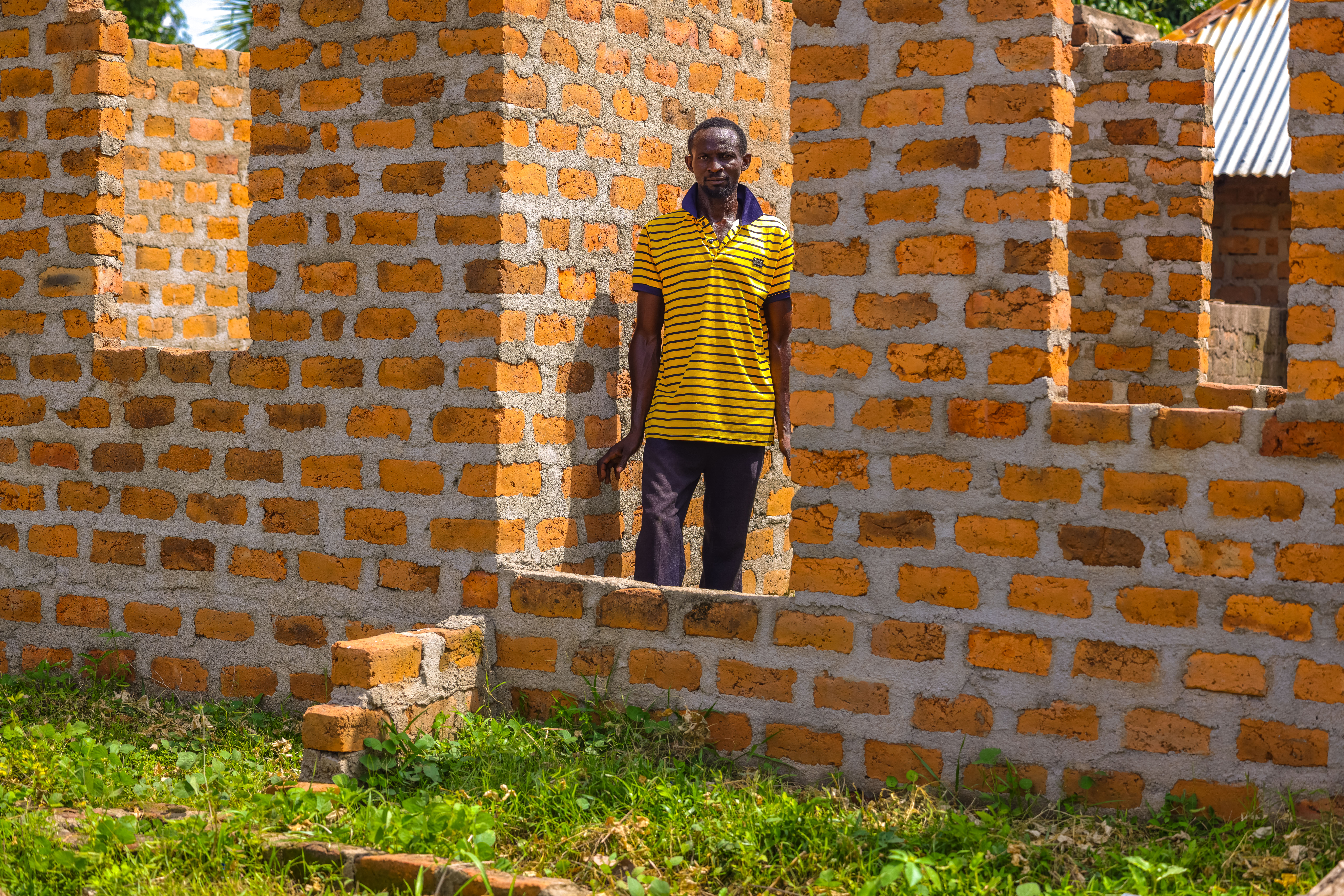
Bridget Aande, who farms groundnut, cassava, and maize on her farm in Mbajor community, says her life has been transformed since the project taught her streamlined planting techniques. “I have only a small area of land, but I can produce so much more,” she says. “And I can use the extra money to invest in more crops and improve my family’s well-being.”
The more we can provide smallholder farmers with the relevant skills, knowledge and tools, we increase their opportunity to play an active role in the protection of our planet, make agriculture profitable and strengthen their resilience.
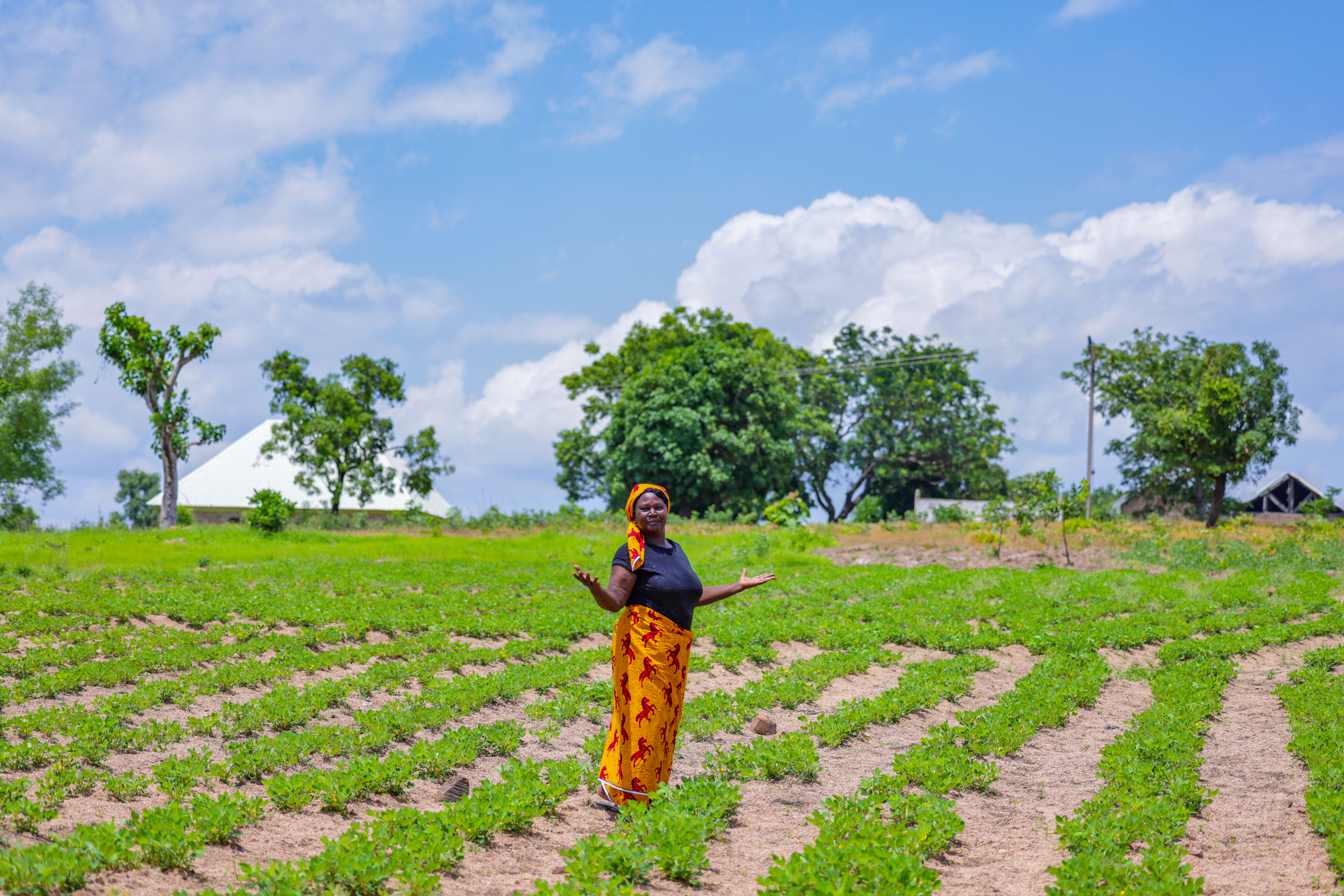
Kendev Gandeoroun is a former teacher who changed his career after witnessing the success his wife was having at the farm. “Teaching was not profitable for me – the income was little and very irregular and sometimes we were owed for months. I felt so discouraged and disappointed as a teacher,” Kendev narrated.
“When UNDP-GEF came to our village, my wife and other farmers in the community were trained on new farming techniques and provided with seeds and other farming inputs. Her first harvest was bountiful, and we were able to use the proceeds to take care of the family. This motivated me to join the project. So far, I have been able to cultivate and harvest rice in large quantities.” Kendev believes that poverty is a thing of the past for him and that he will not be returning to teaching any time soon. His decision to engage in farming stems from the availability of improved seeds because they allow for quick and plentiful harvests.
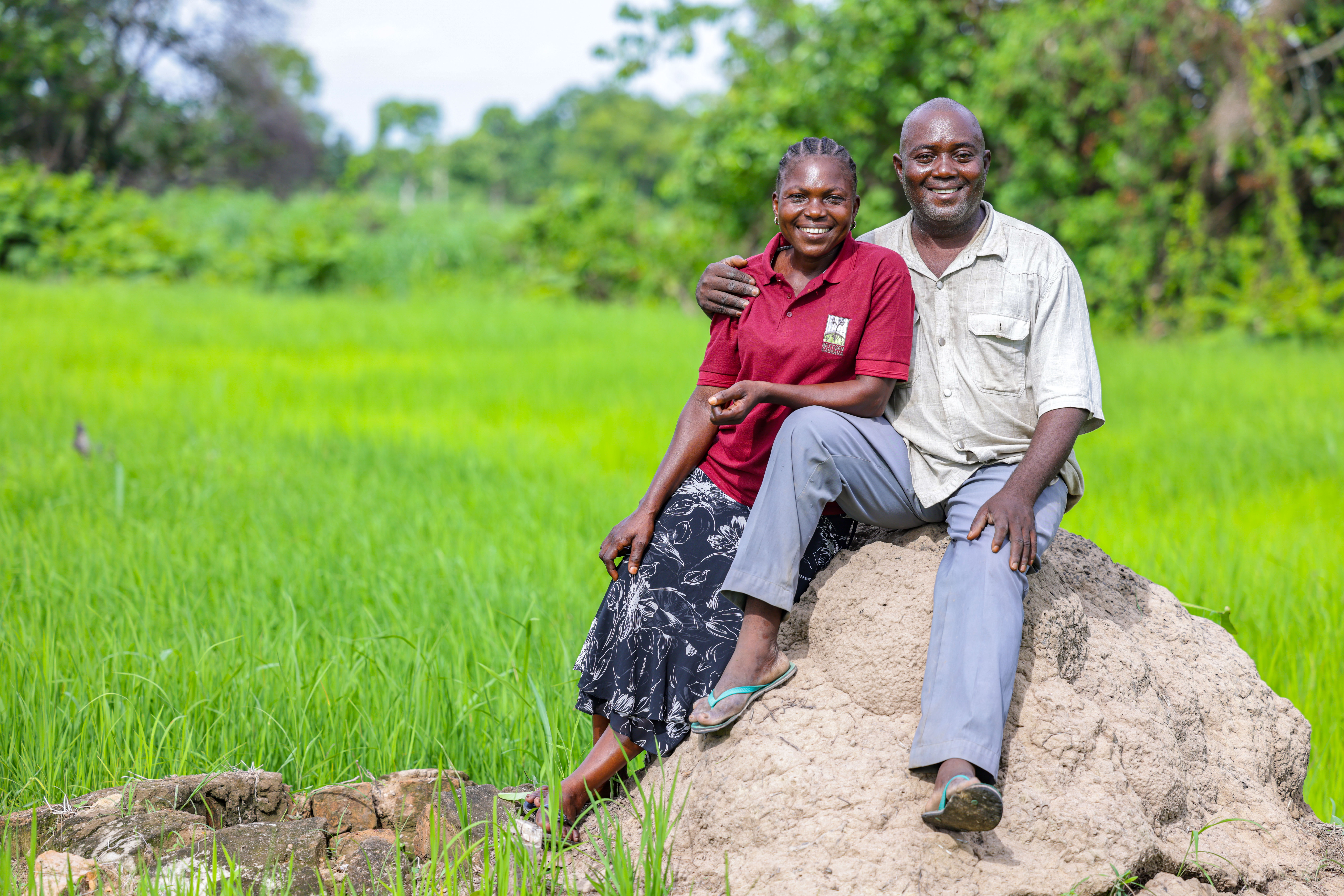
One of the new farming techniques Alex Ikwe from Adum East community in Benue adopted was how to maximize a small piece of land by leaving less space between his crops. Since he began applying this method, his crop yield has significantly increased. “Last season I was able to harvest more bags of rice. I personally got 18 bags of rice from the 50kg of rice I planted. Before I used to have spaces in my farmland but now every inch of my farmland is covered with crops.”
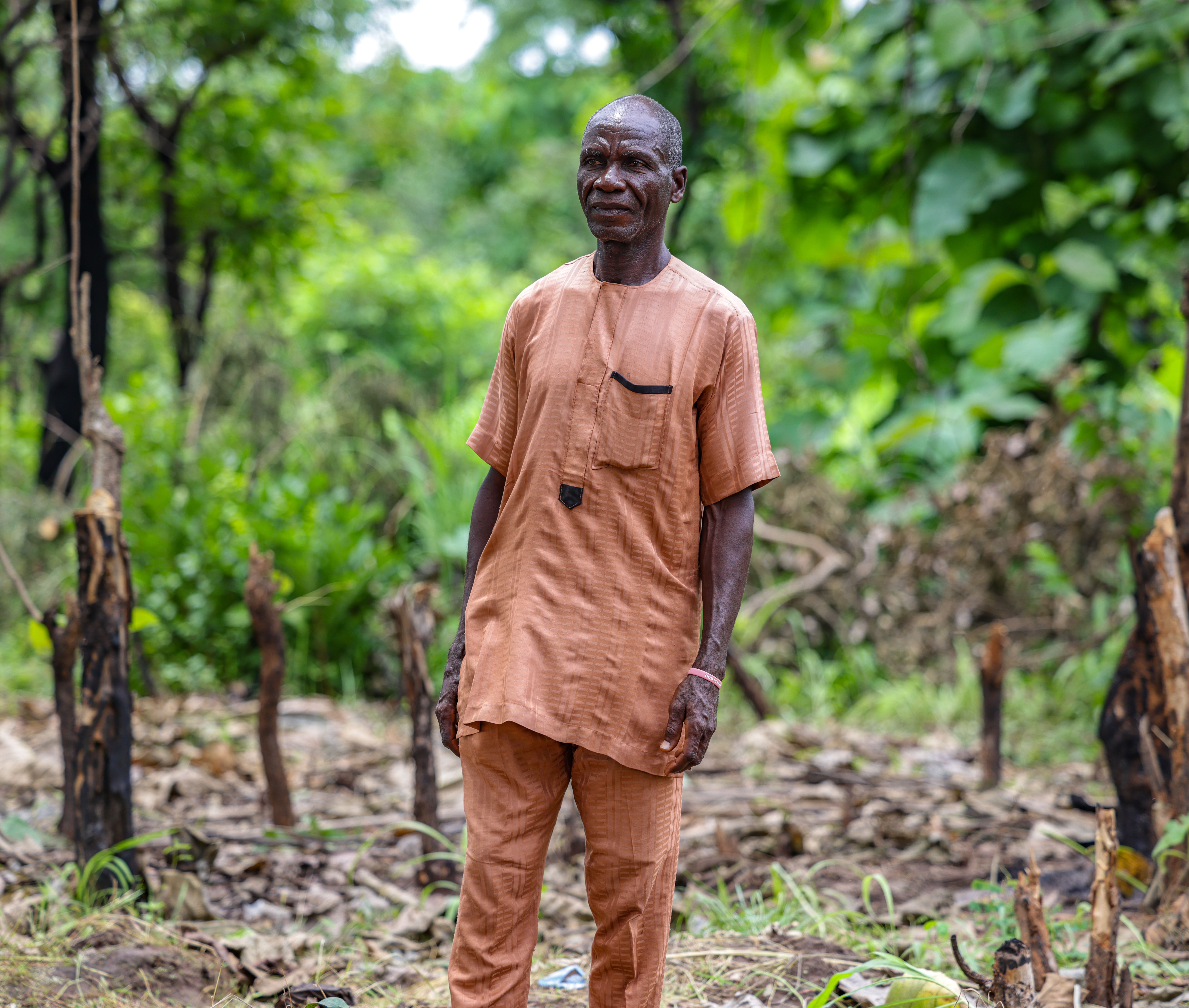
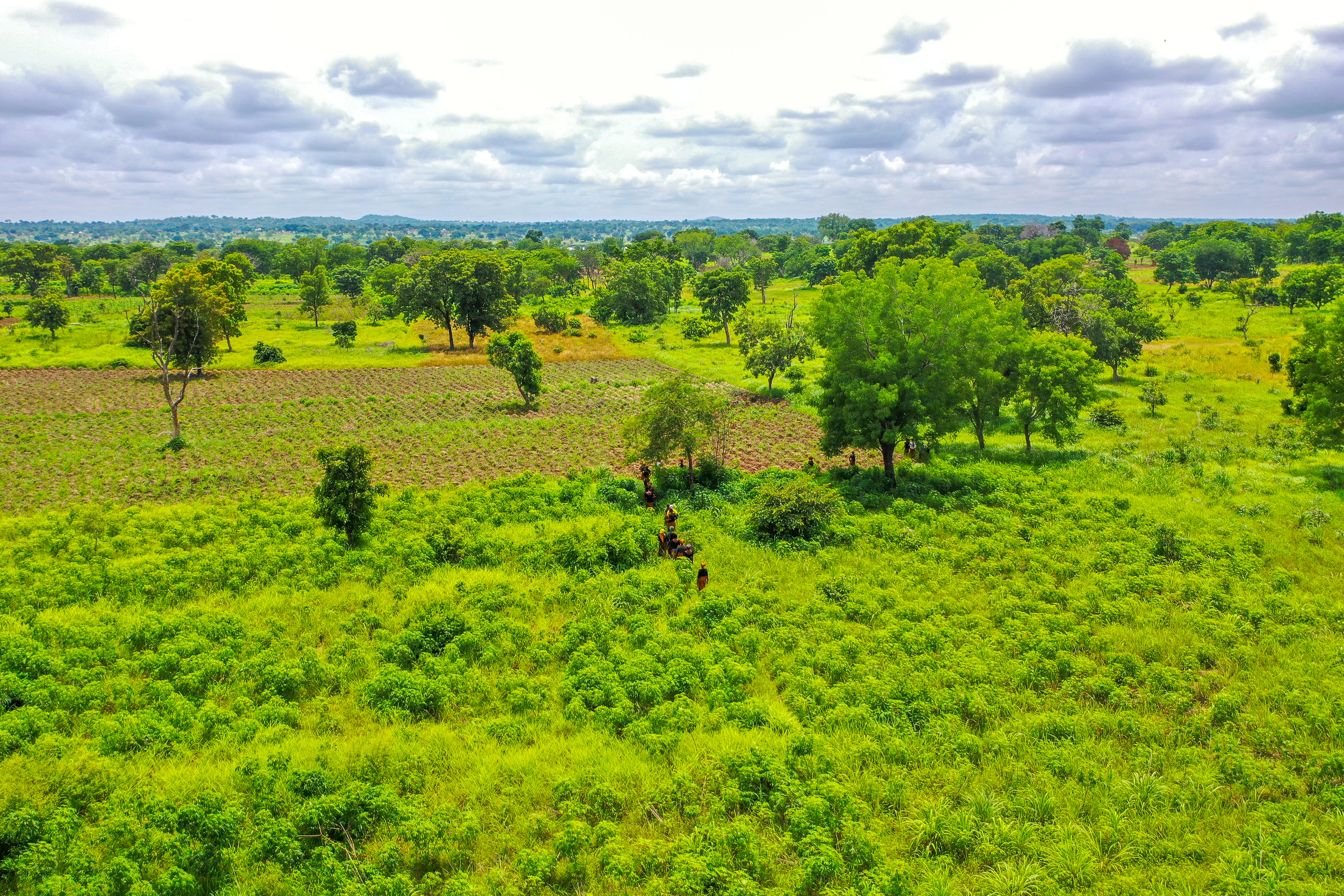
Smallholder farmers normally use agricultural practices that are often unsustainable which contribute to low yields due to a lack of expertise. To address this challenge, the Food Security Project has trained farmers using demonstration plots to show how productivity can be improved. Through direct observation and hands-on experimentation in the field, farmers are able to apply new techniques and skills and adapt the approaches to their local contexts.
Farmers adopt climate-smart agricultural practices faster when they are shown how it is done using demonstration plots and fields. These plots are designed to imitate a farmer's usual working environment and allow them to interact with the trainers throughout the practice session. Farmers were trained on the farming processes in the demonstration farm, from the selection of seeds, nursery establishment and management, transplanting, post-planting management, proper harvesting, and storage practices.
Amos Agbor Egbe is one of the farmers in Irabi Ito, who has implemented what he learnt on his own farm and is able to generate more income for his family as a result of the high yields. According to him, he learned and is now adopting “bonding practices in rice fields to show suitable land and water management, use of Aflasafe to control aflatoxin infestation in groundnut and maize production, and use of inoculant in the production of soybeans for early establishment and higher yield.”
So far, 170 demonstration plots have been established in 10 communities of Buruku and Obi LGA of Benue State.
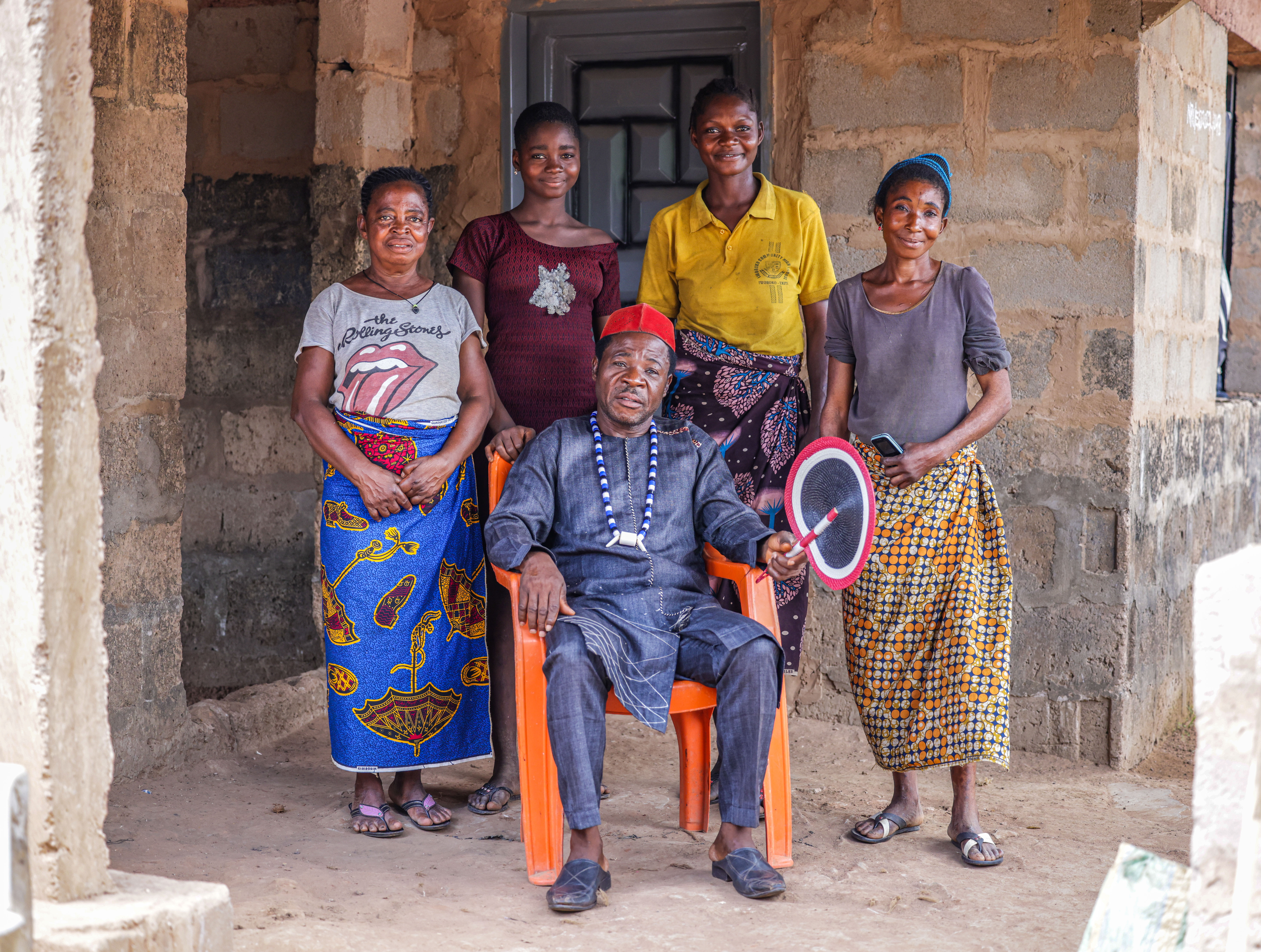
Farmers were not only trained in the best practices for optimum crop yield but are also provided with improved variety of seeds, which encourage them to become seed producers themselves.
For instance in Adiko community, David Agor, with other farmers, participated in several trials and demonstrations of improved rice and cassava varieties. “We were given high yielding varieties of rice (Faro 44), groundnut (Samnut 24 and 26), Soyabean (TGX1448-2E) and Cassava (TME 419).” The group were given 50kg of rice to farm in 2019 and harvested 600kg in the first year. In the last harvest, they were able to produce 6 bags of rice weighing 300kg each.
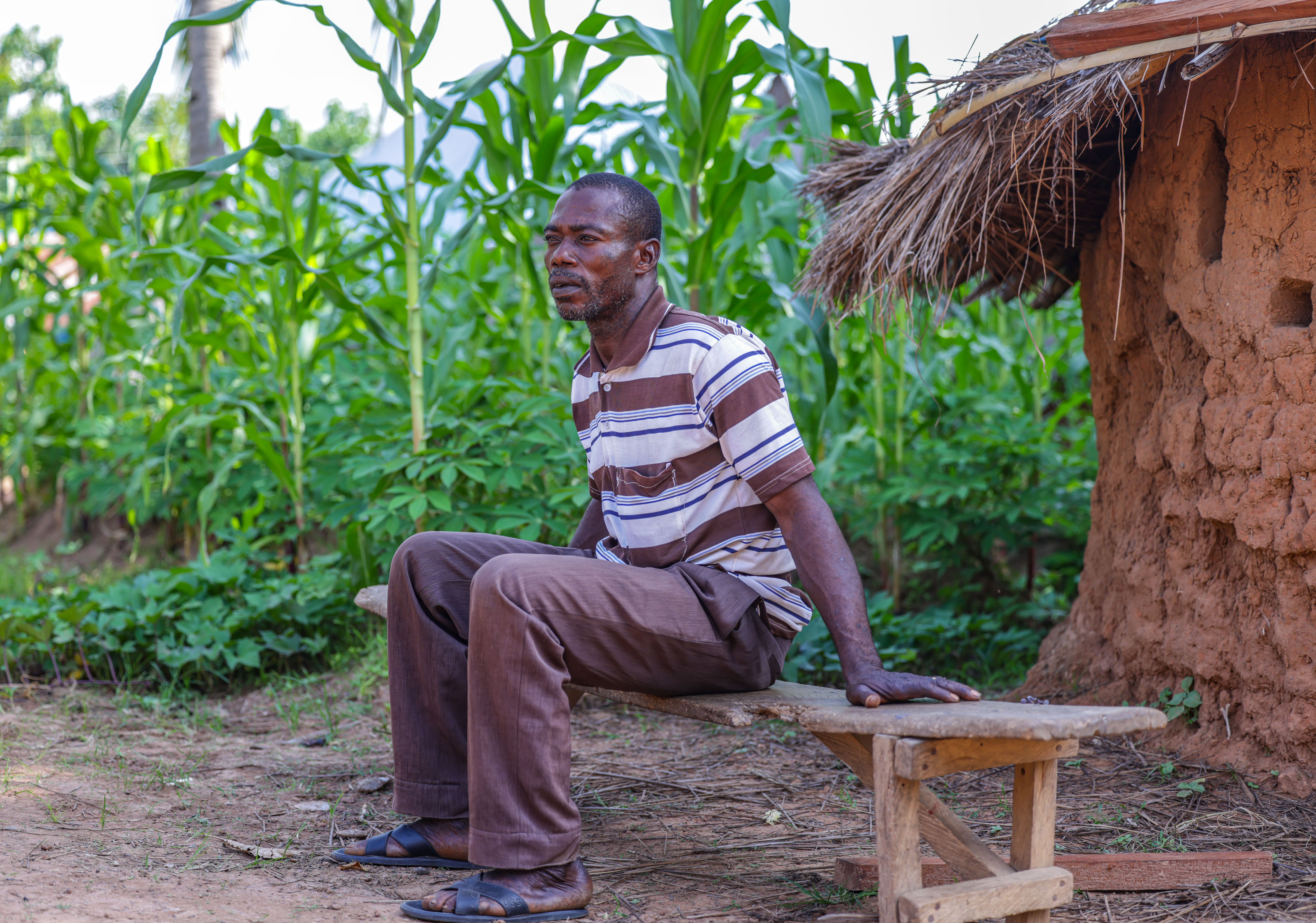
In 2021, David produced 17 bags of processed cassava chunks and harvested 6000kg of rice from his farm. The farmer and his wife, Owonya Agor, are now models in quality seed production. Their recognizable change in their farming techniques has improved their earnings which in turn has had a positive impact on their social status; visible to others in their community. “There has been great progress. In less than 5 years, we have been able to double the yield potential of the varieties that we use now. Before, we used to grow a local variety of crops which produced low yields and were prone to diseases and insect Pest attacks but today, thanks to this project, we have access to improved seeds,” he said.
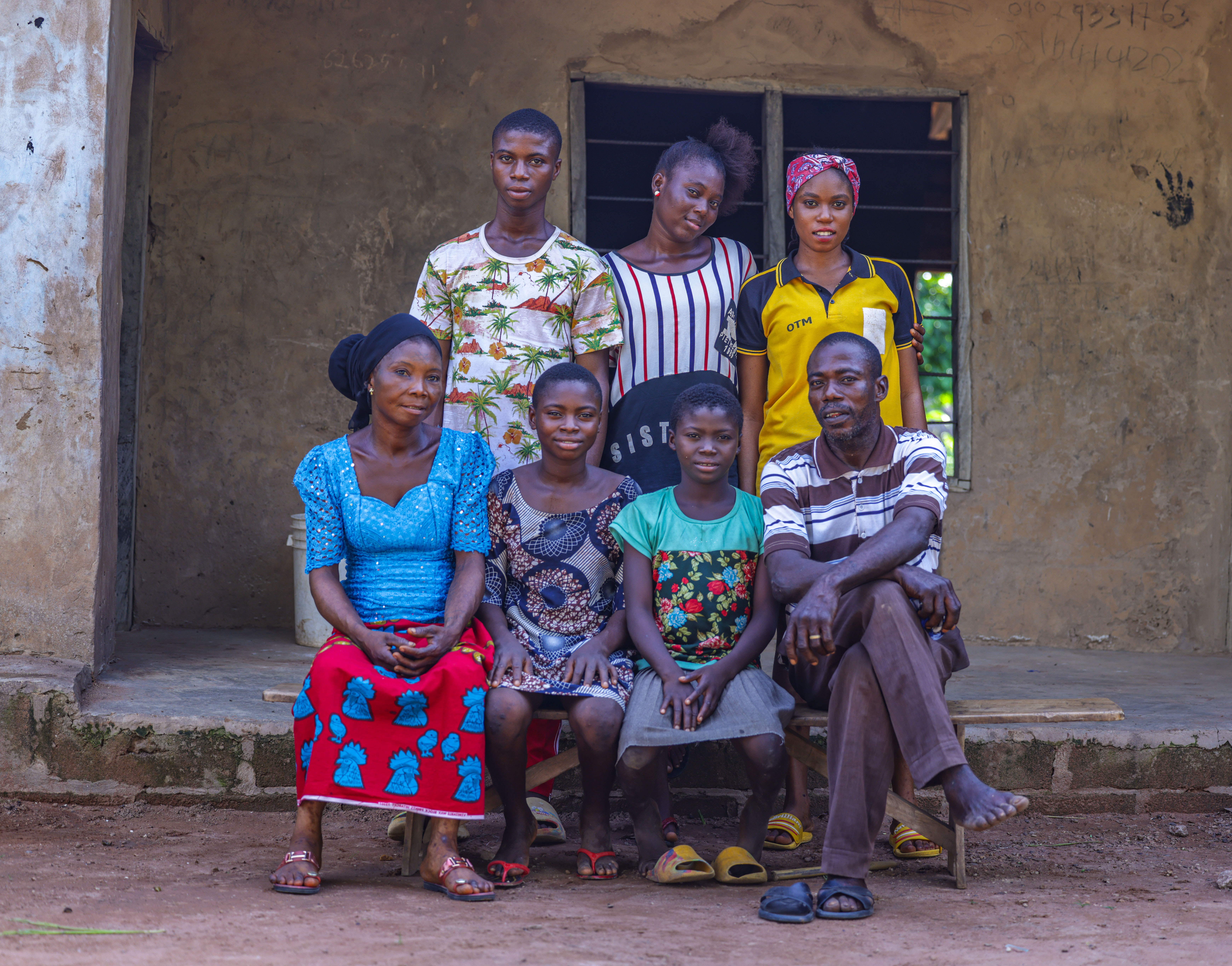
Despite the apparent benefit, the journey to adopting new farming approaches and practices is not always easy. The story of Comfort Onyike and the Ogore Ito women's group exemplifies challenging change can sometimes be. They had been farming for many years, but due to local seeds and poor yields, were not able to turn their farm activities into a commercial venture. After the intervention of the Food Security Project, this changed. The group was given 25 kg of improved groundnut seeds in 2019, from which they harvested six bags weighing 100kg each. Last year, they harvested ten bags. “This intervention has been a blessing to our group. We have been able to cultivate and harvest good yields. From our harvest last year, we sold 8 bags of groundnut at 24 000 naira each. We kept one bag to plant this farming season and shared the remaining amongst ourselves so we can plant on our individual farms.”
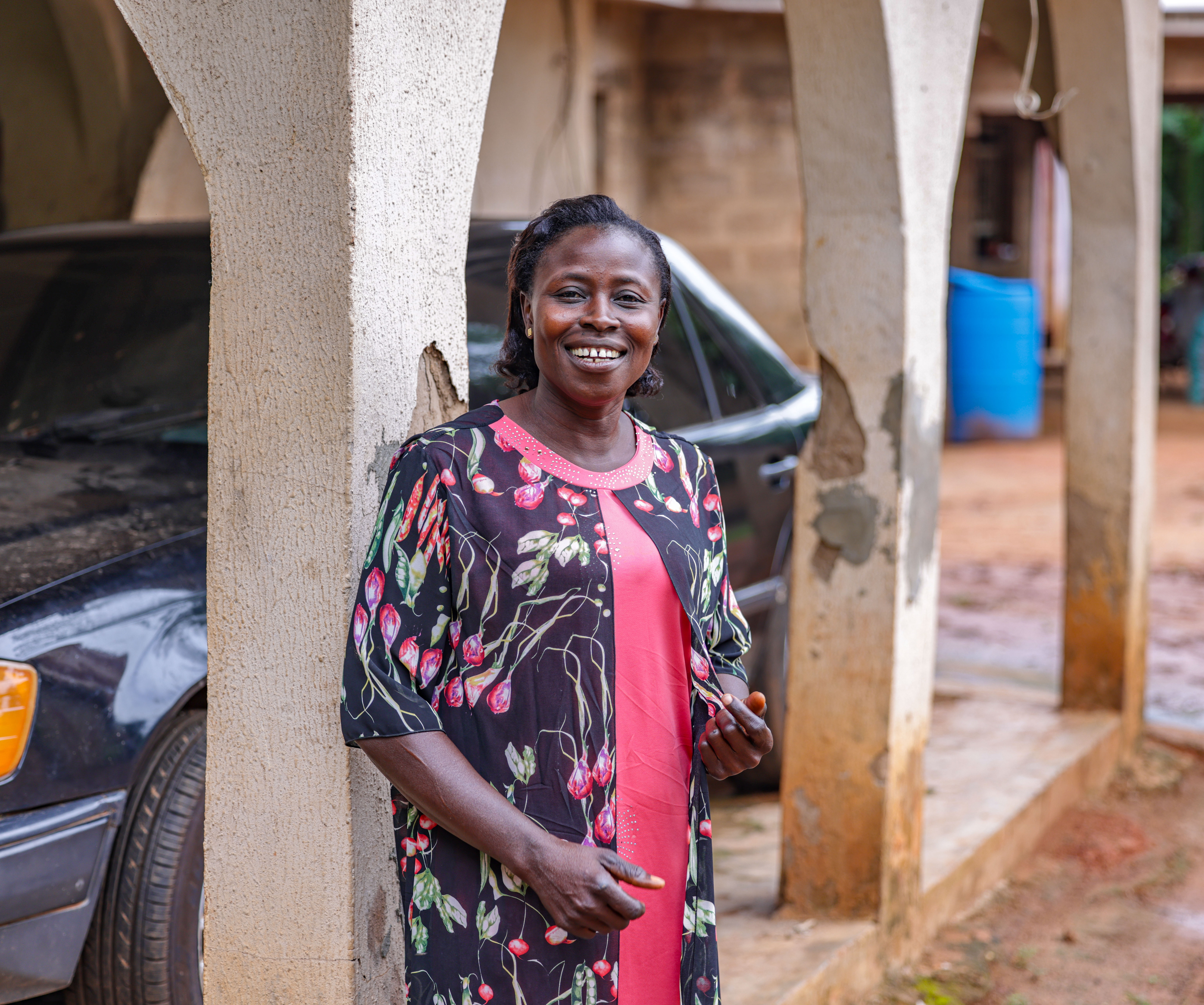
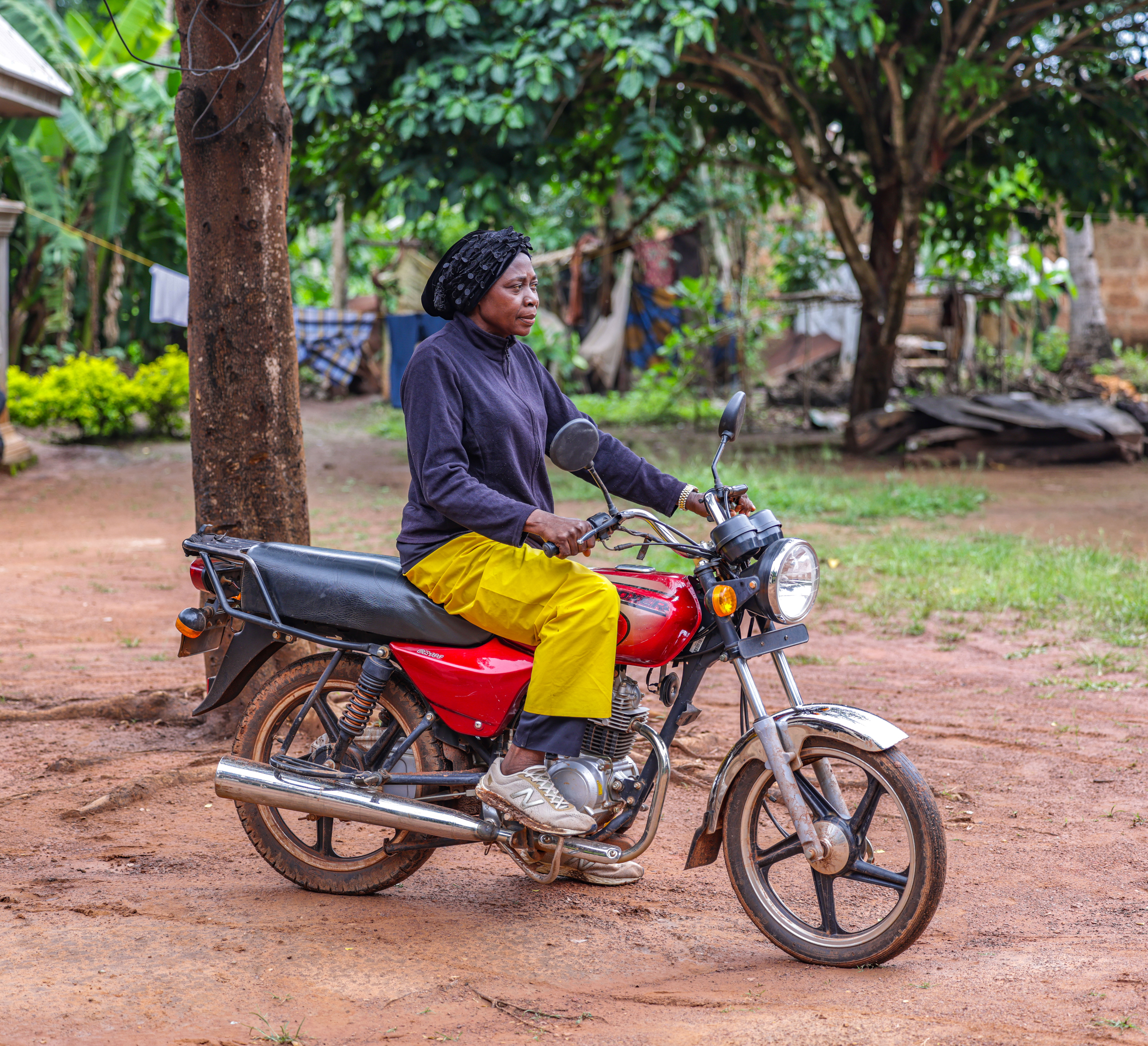
Akaa Saaondo from Mbaatindi village was given improved seedlings of orange, mangoes, cashew, oil palm and Neem which he planted in 2021 and is beginning to see good results. He hopes to start harvesting the mangoes and oranges in the next two to three years. On the other hand, the Neem trees prevent erosion by planting them at the edges of the farmlands and can also be used for timber when they mature.
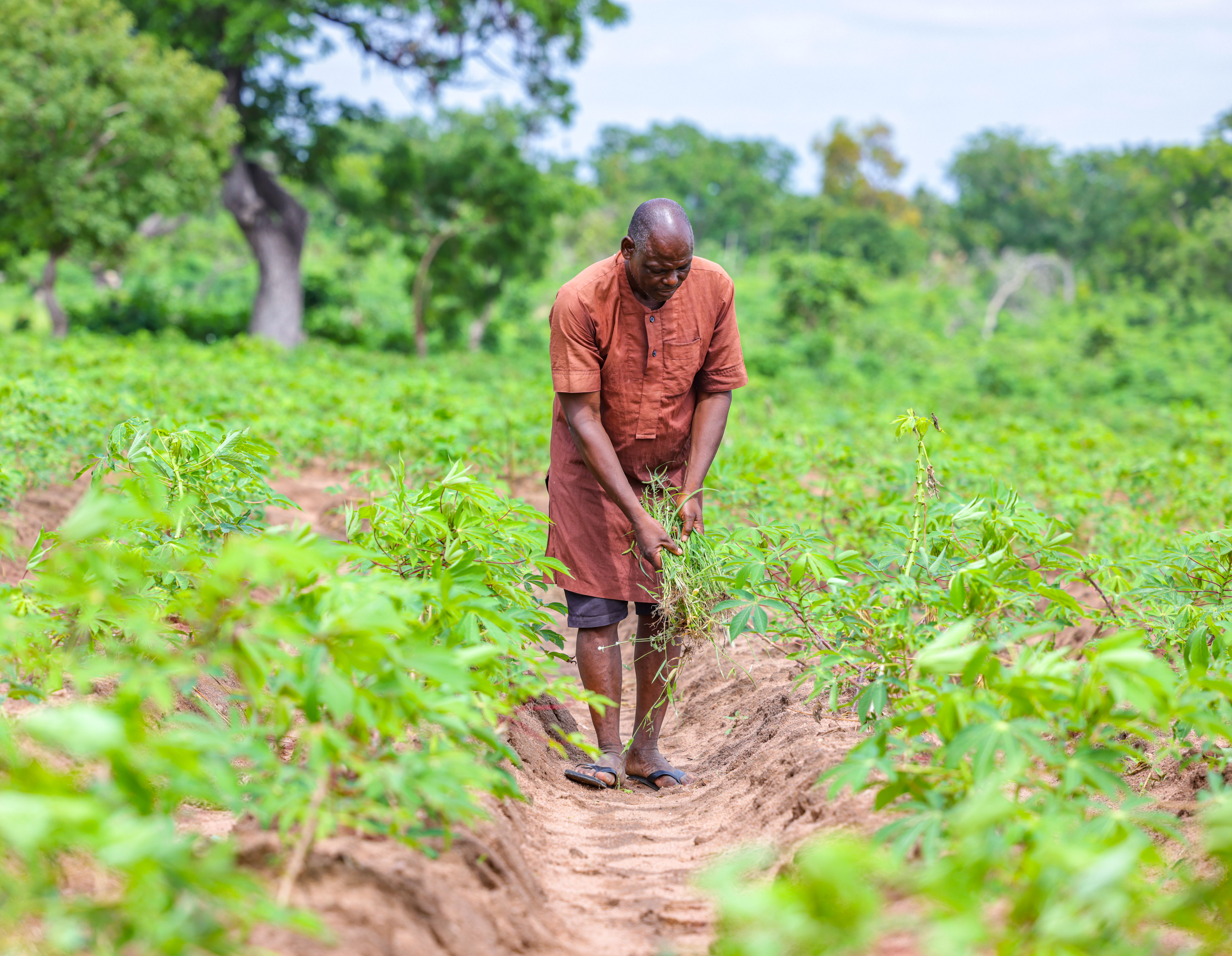
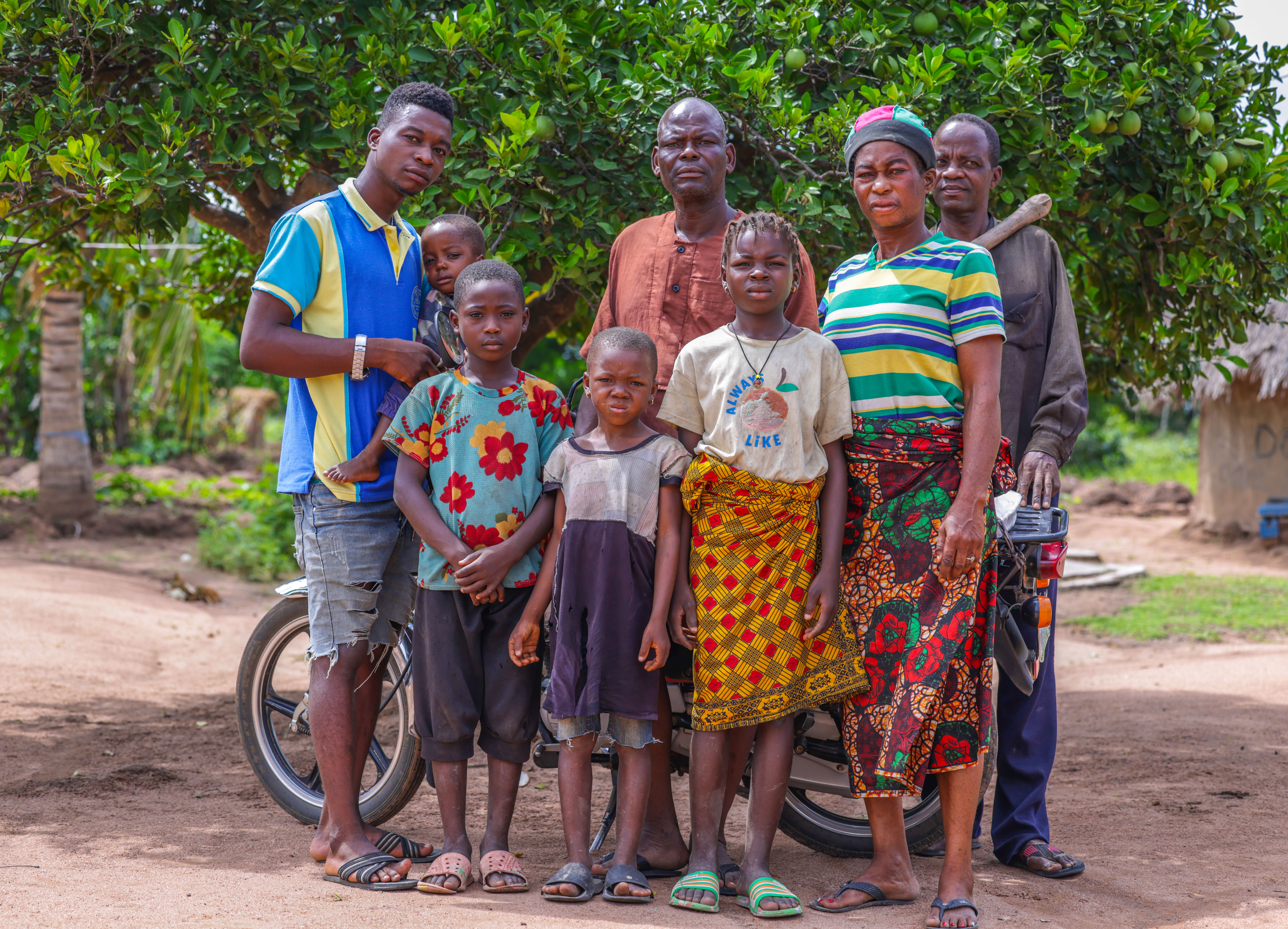
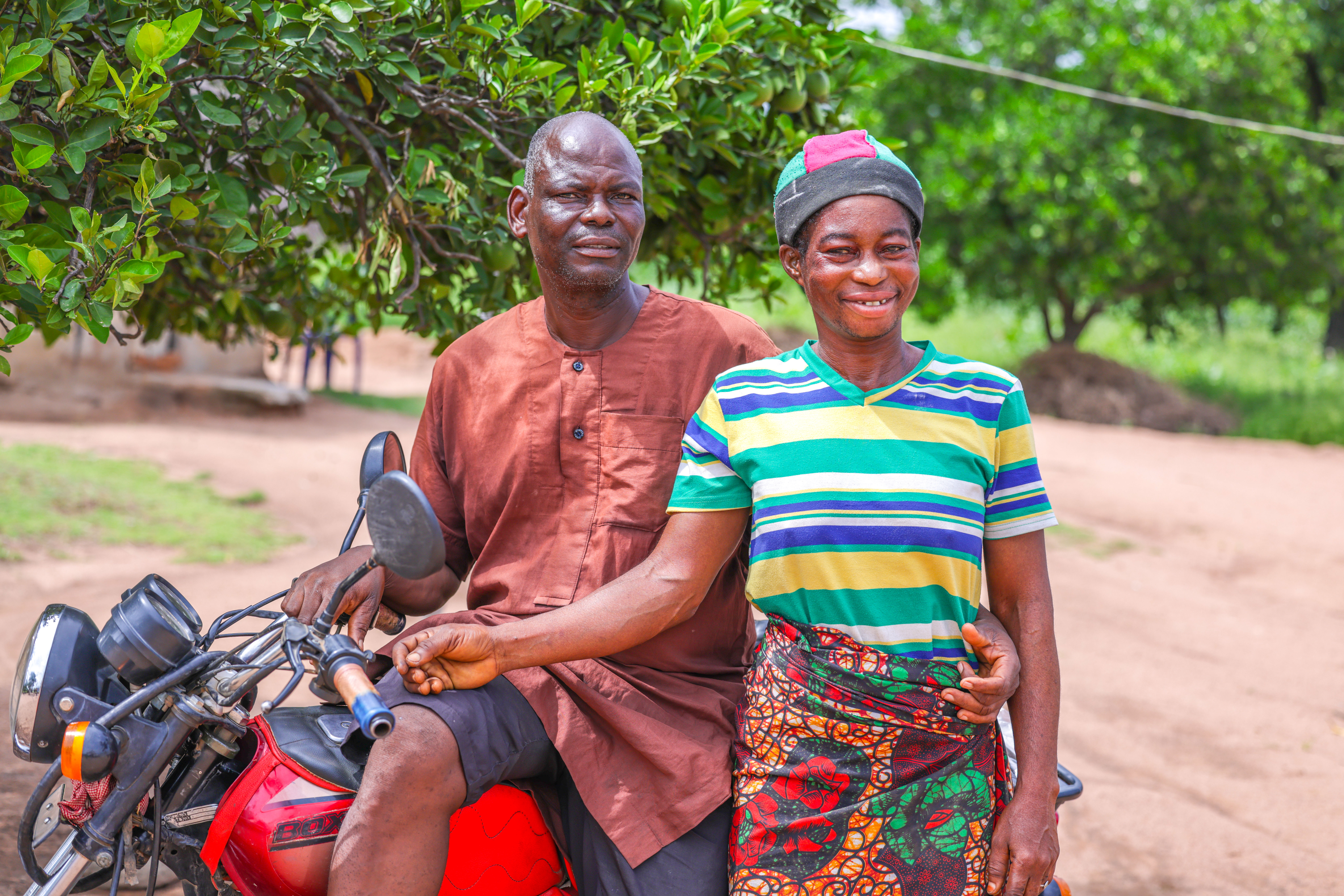
“Last year’s harvest was the best for me. I have been able to care for my family and pay school fees from the proceeds,” said Victoria. Victoria Gber-Terumbur from Mbagir village has seen bumper yields and an improvement in her income since she started planting improved seeds provided by UNDP-GEF in 2019. So far, she has harvested 10 bags of groundnuts, each 100 kilos and 20 bags of cassava chunk, each 100 kilos.
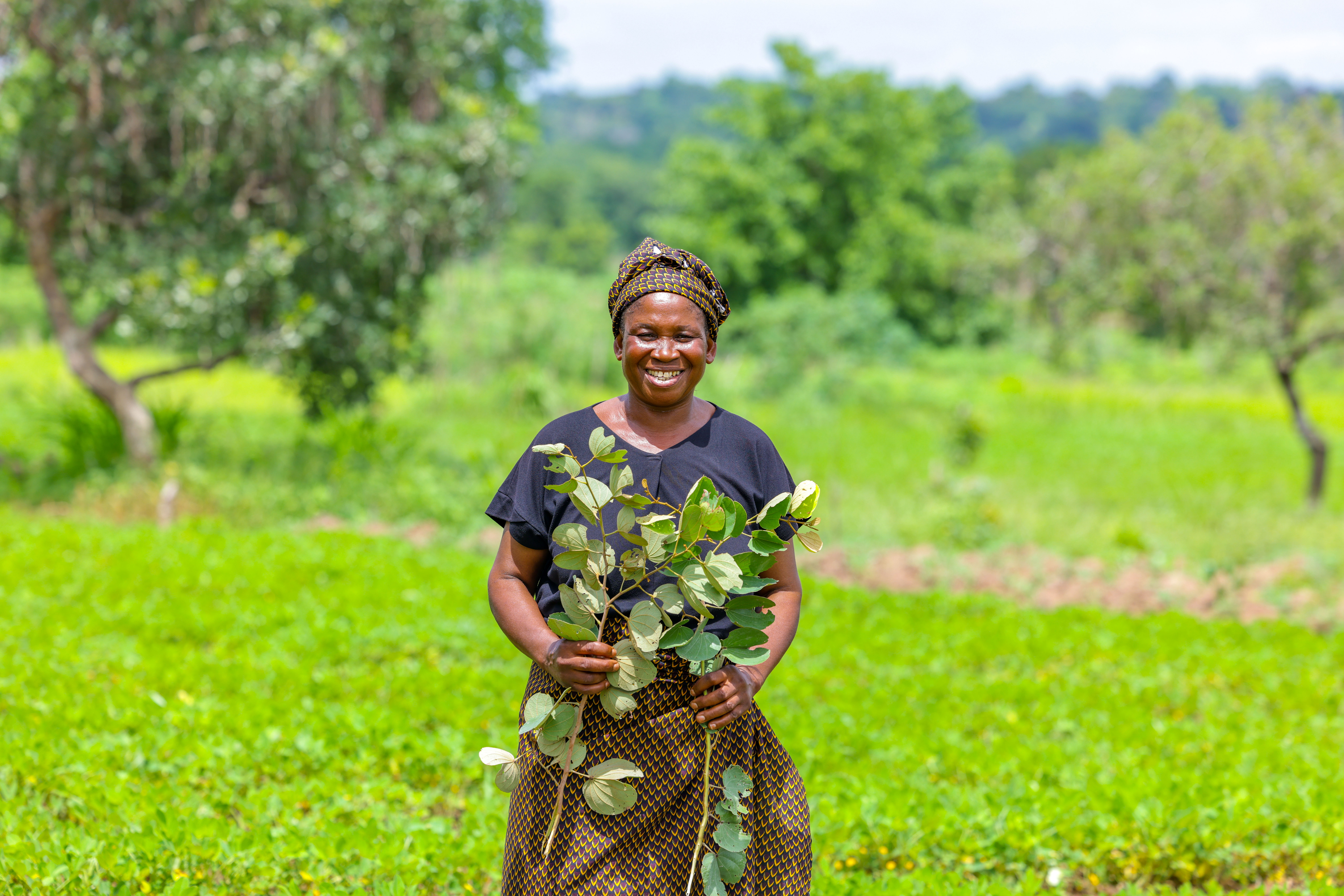
Drought, excessive rain, flooding, heat, and cold, as well as other constraints have a significant impact on soyabean production in Obi LGA. Despite the erratic rainfall patterns in this area, the project has supported farmers to increase their productivity by promoting drought-resistant soyabean variety and better agronomic practices. Alice Ogbu from Adiko community shares that they were not farming Soyabean before the project came to their community, but after the introduction of the high yielding variety, they are now planting them. “Last season, we harvested 5 bags of Soyabeans each 50 kilos These varieties can withstand some of the climate-related constraints and we are grateful for this initiative.”

Droughts are becoming more common as a result of climate change, wreaking havoc on livelihoods, particularly that of smallholder farmers. "During the dry season, most of us don't farm, and life becomes difficult because we have no income." Lilian Inmo, lead farmer for groundnut in Adum East community.
In most parts of Nigeria, the dry season can last from late October to April. These prolonged periods of little to no rainfall can leave farmers with little to no harvest, leaving families without much to eat or sell for months. To address the challenges of seasonal rainfall variability, UNDP-GEF introduced the farmers to dry season farming where they use irrigation system to water their farms. Amor Kershima and his family of seven are no longer forced to endure months of no rainfall on the farm. They practice dry season farming and can now eat fresh fruits and vegetables all year while earning a steady income.
Amor has seen huge success since he adopted dry season farming. The treadle pump supplied by UNDP-GEF has made watering his farms faster and much easier. During the rainy season, he grows a variety of crops, but in the dry season, he primarily grows vegetables using the irrigation system.
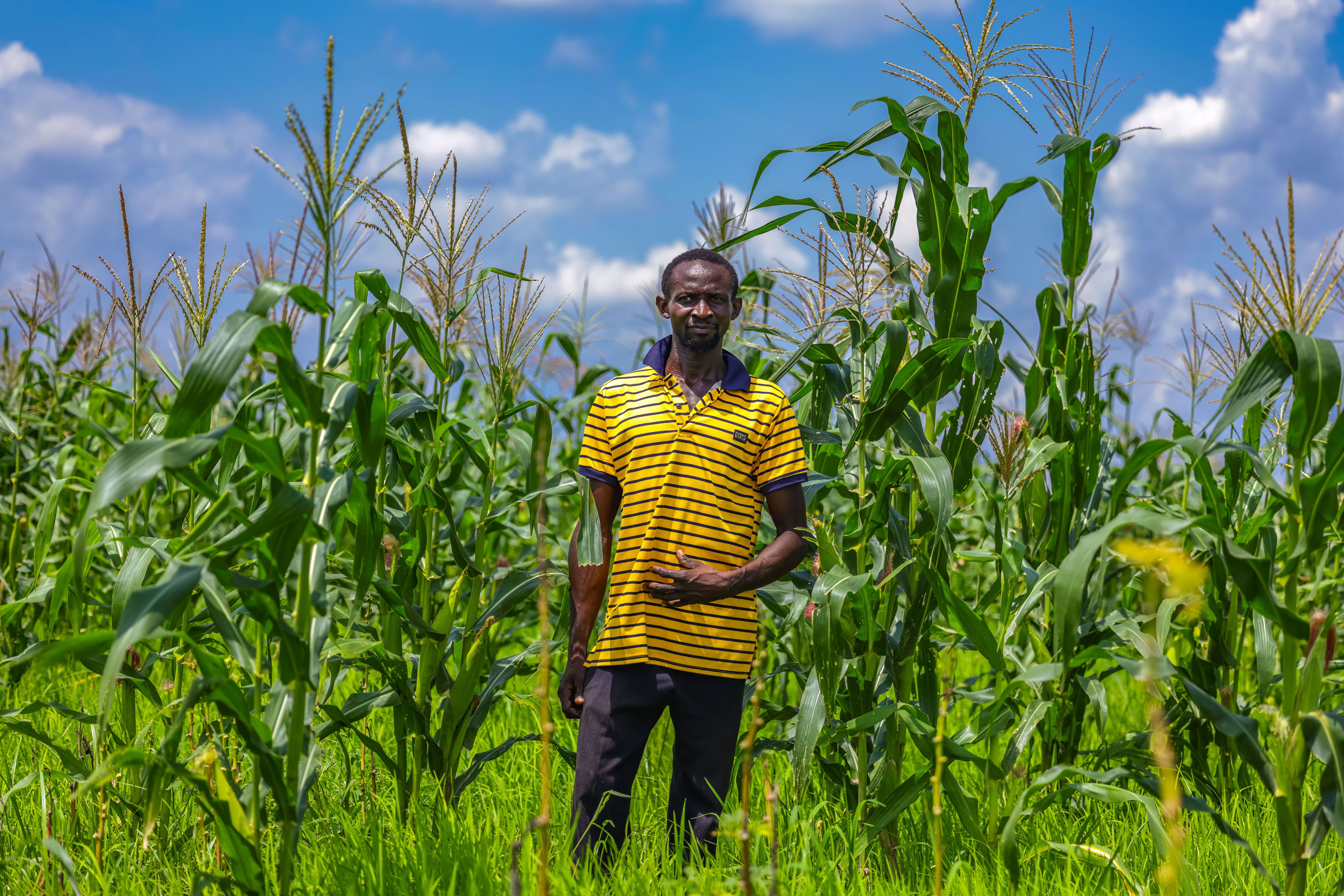
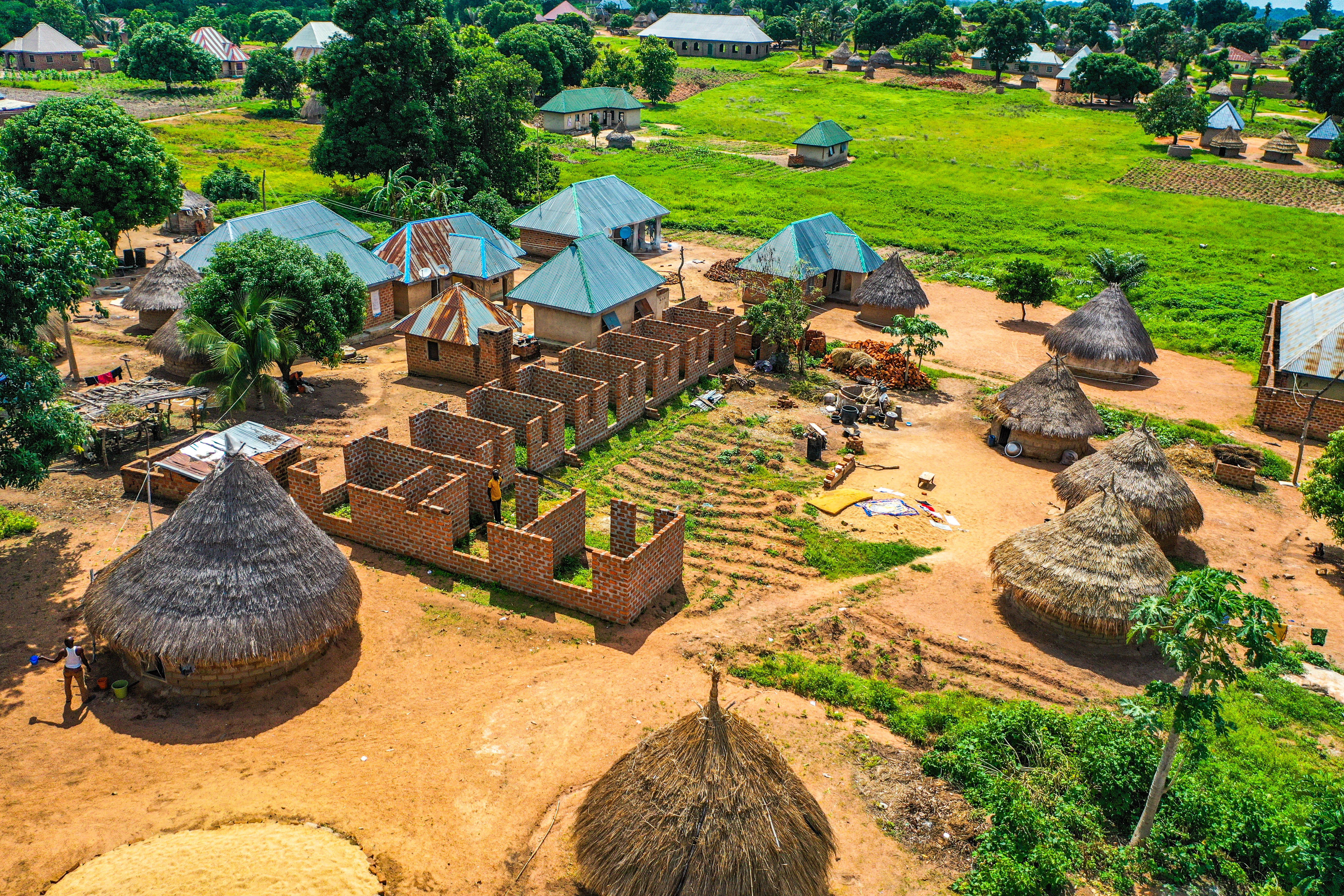
In August 2020, starting with 10 communities in Benue State, UNDP-GEF with support from Benue Agricultural and Rural Development Authority, trained farmers in the production of high-quality bio-fertilizers using readily available tools and resources. The goal was to effectively manage community waste and to utilize organic manure as fertilizer to reduce the presence of agrochemicals in the environment while securing higher crop yields for the growing population. Farmers in these communities are now building elevated compost trenches and incorporating the use of biofertilizers in their farms. With their new production skills, these resource-constrained farmers now produce high quality organic fertilizers that pose no threat to biodiversity at no cost.
“We used to use harsh fertilizers and chemicals on our farms. This did not help our land because we kept adding poor quality fertilizers which deteriorated the soil, resulting in low yields. With UNDP-GEF assistance, we transitioned to organic farming, using organic compost made from dry and wet grasses, animal dung and water. My pepper yield has now doubled and the maize is growing at a faster rate.” Said Bridget Aande. Bridget is a farmer with three children. She was among the farmers who received training on compost trench production and has been using this technique on her farms.
“My farm income has doubled since I combined food crop cultivation. Surprisingly, my family and I are now in better health. We do not have to go to the hospital as often as we used to because we eat what we grow. Our soil is regenerating, which makes me happy.” Bridget continued. “Until now, purchasing the right fertilizer was one of the most difficult challenges we faced during our crop production cycle. The project has trained us on the correct and efficient use of chemical free fertilizers thereby reducing environmental damage from incorrect usage.”
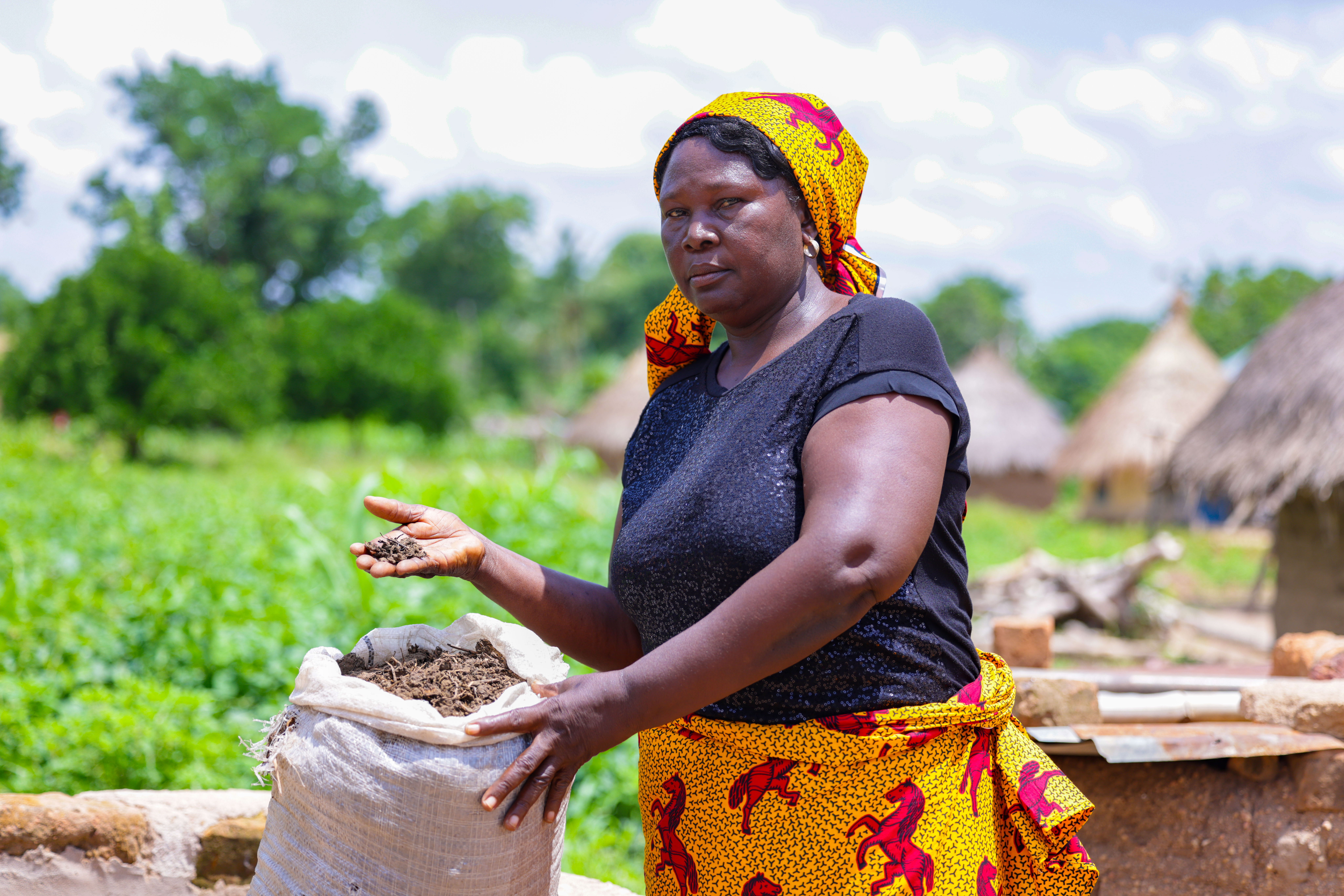
Farmers are now able to increase the organic matter content of their soils by using fertilizers made in their own backyards, thereby being able to know more what they are putting into their soils and overall improving soil texture and fertility over time. The use of biofertilizers, when combined with good agricultural practices, is expected to increase crop yields by at least 40%. This practice has the potential to improve food security and is helping the farmers redirect the money for fertilizers to other ventures.
“We were used to traditional methods of farming before the UNDP-GEF Project came to our communities and taught us new methods and techniques for growing crops and increasing production. Prior to the introduction of these new agricultural practices by the UNDP/GEF Project, applying fertilizer on our farms alone took a significant amount of our resources. I learnt how to make and use compost or organic manure that is affordable, and I have seen increased yields as a result.”
Following the success of the pilot programme, the project has since expanded the intervention to all 70 project communities, reaching over 2,000 farmers.
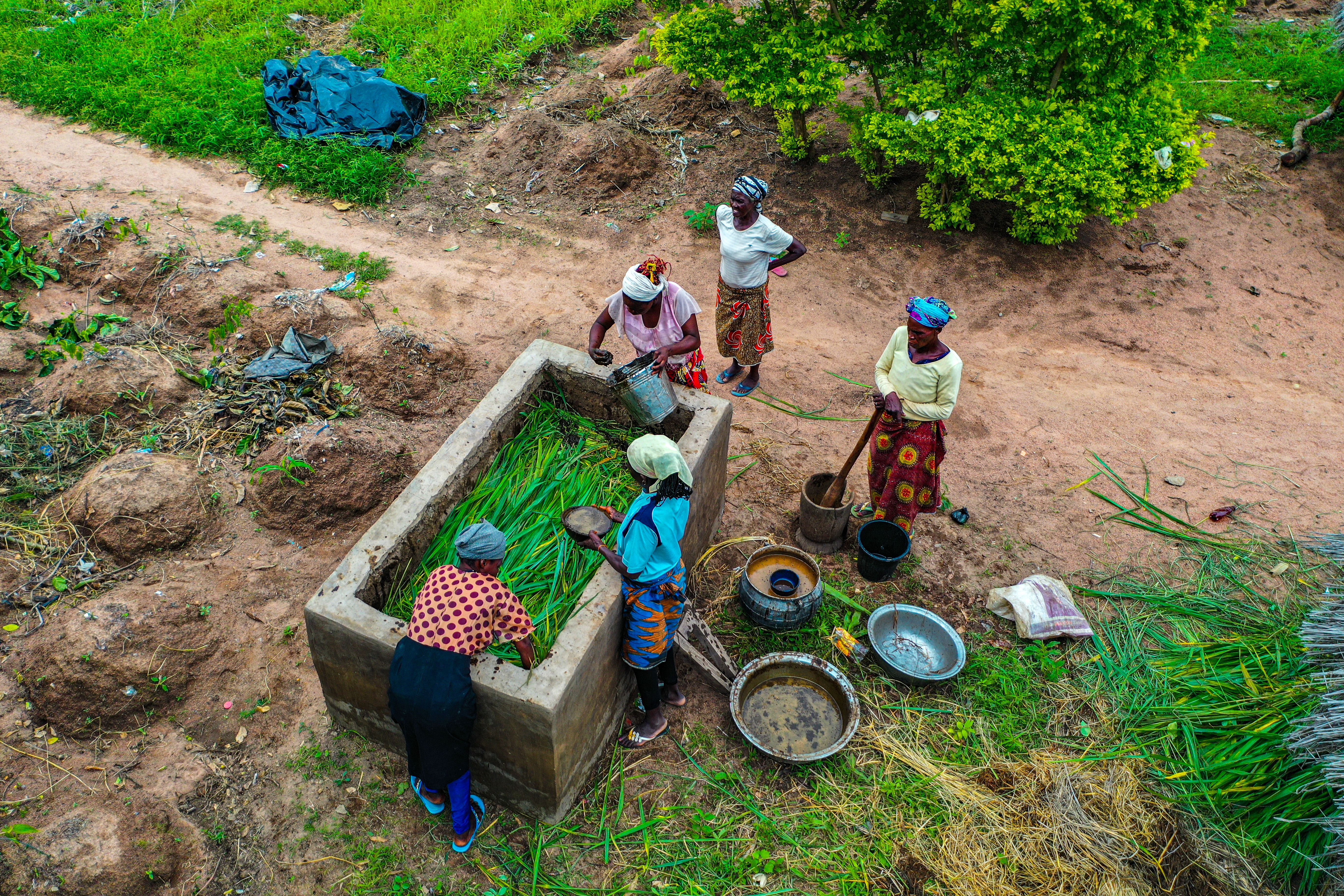
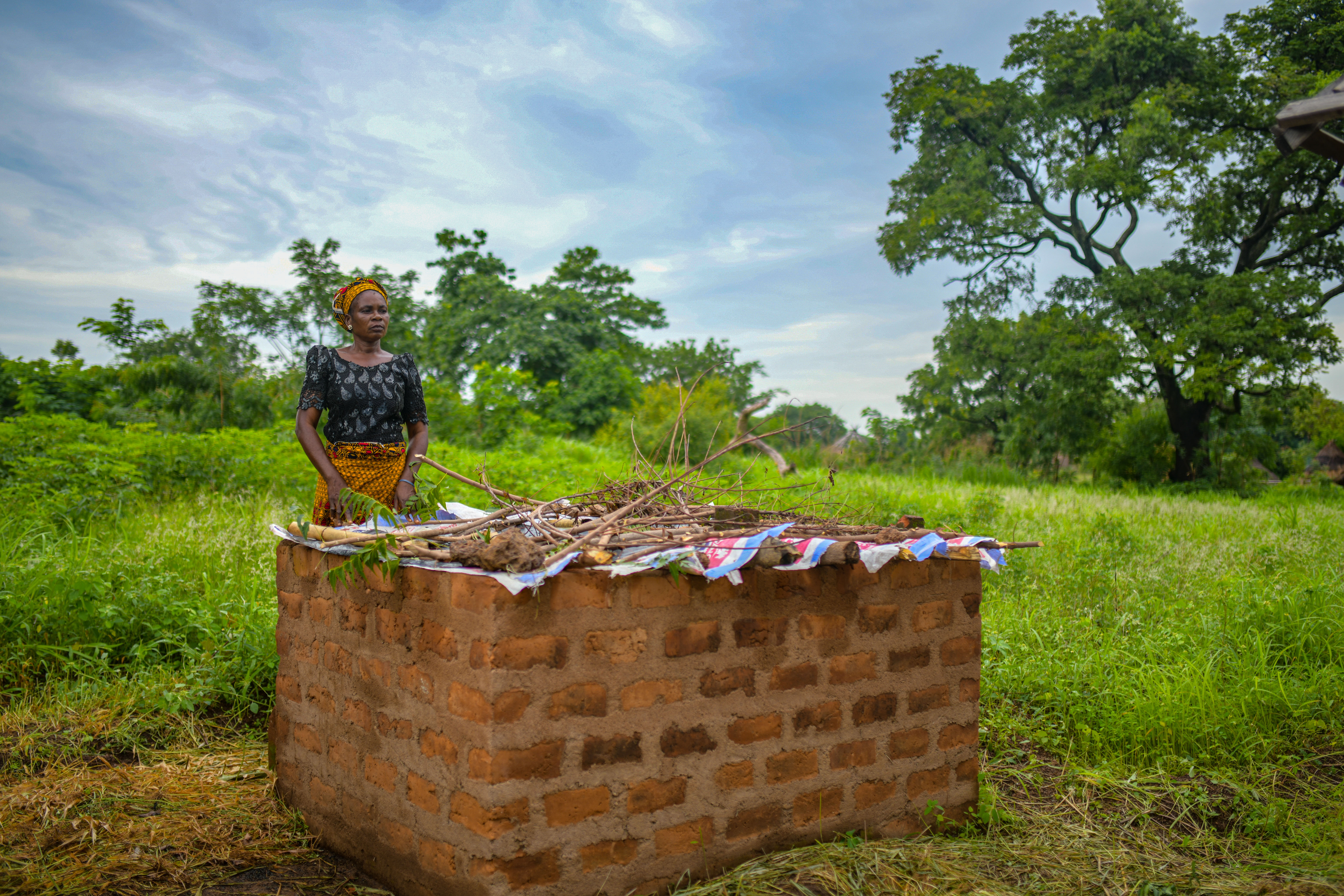
Soil erosion is a major issue in Buruku and Obi LGAs during the rainy season, with run-off generating deep gullies that damage around 40% of the land. To address this issue, farmers were taught how to ridge across a field's slope to reduce erosion in fields, particularly in groundnut cultivation. They were also trained on how to construct fences which help to break the speed of the water.
This project has provided farmers with the knowledge and technical knowledge they require to be successful and sustainable. “Thanks to this project, we are now able to practice contour farming to minimize erosive damage. This involves tilling along row patterns wrapped horizontally along a hill’s contours instead of up and down,” says Jonah Ako from Adum East community.
Hard work and the application of erosion control techniques are paying off for community members in Buruku and Obi. According to Peter Ayaku “We are seeing an increase in productivity, and other community members outside of this project are asking us to provide them with ideas of how we are transforming our farms. For example, we now add manure beneath the soil's surface to fertilize the fields. This is because organic manure made up of decomposing plants, and animal material helps to bind the soil together and reduce erosion by increasing the water-holding capacity of the soil.”
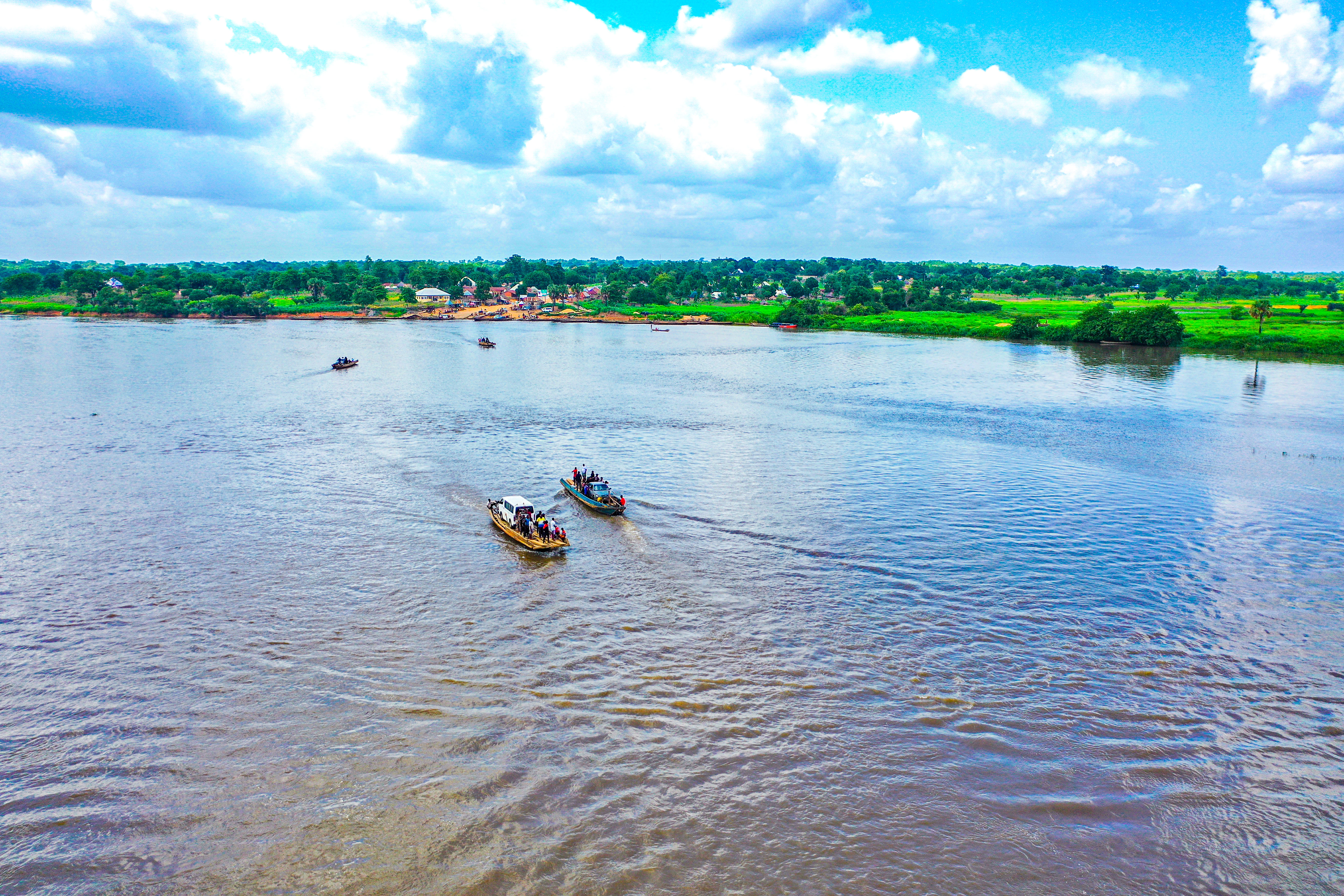
In Nigeria, land degradation poses a severe challenge to development. The Food Security project is working to change this. Through agroforestry it is possible to repair degraded lands and vital ecosystems using a variety of approaches and practical technologies.
Agroforestry is the intentional and methodical incorporation of tree planting in farmlands and livestock grazing areas, which is a critical component in maintaining healthy landscapes. Through the Food security project, degraded lands are being reclaimed and trees planted in croplands, communal fields, and pastoral areas. This farming technique not only boosts the yields of associated food crops, but also provides various tree products such as edible fruits, vegetables, fodder, wood and some valuable wood extractives, there by encouraging the maximum utilization of land and labour.
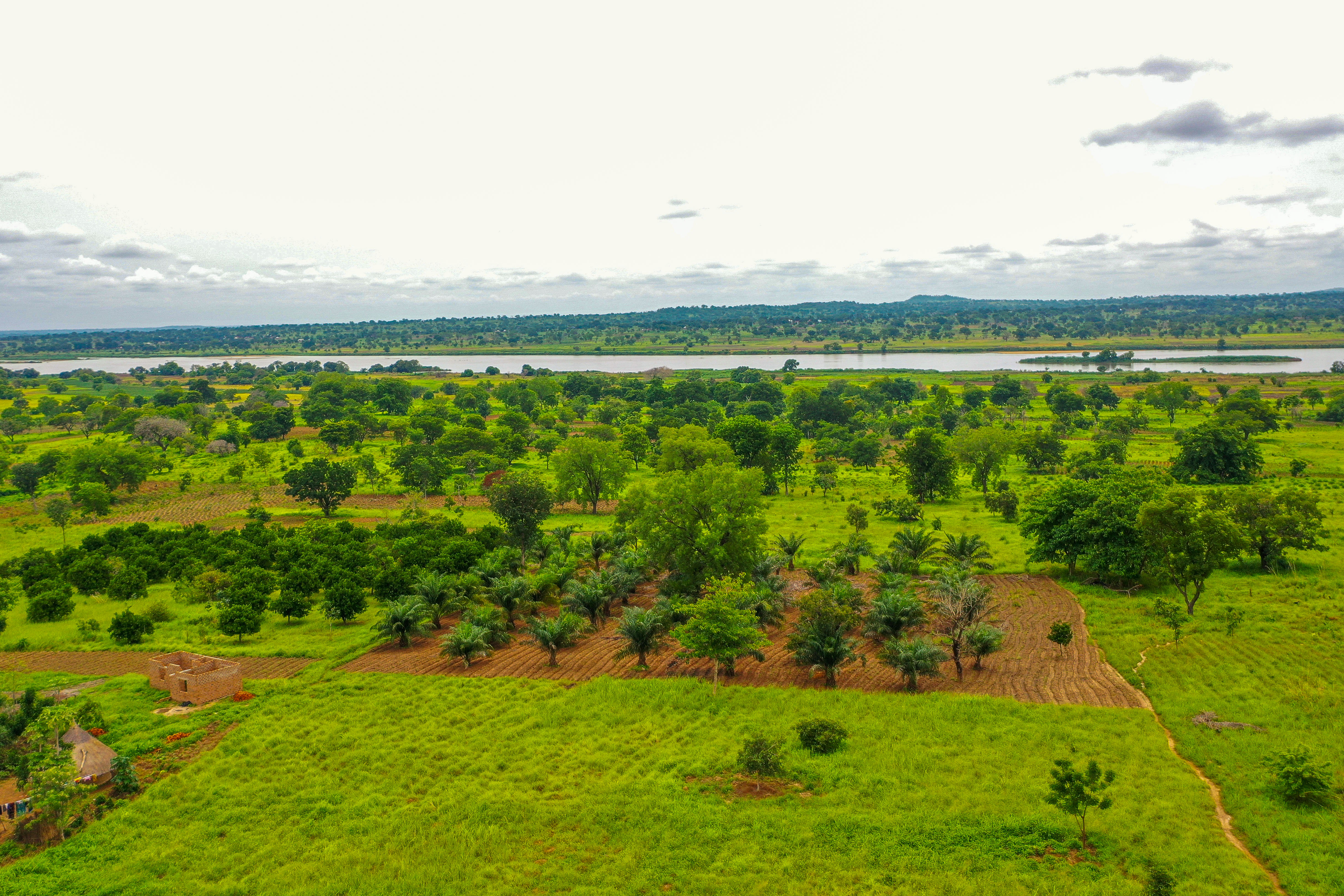
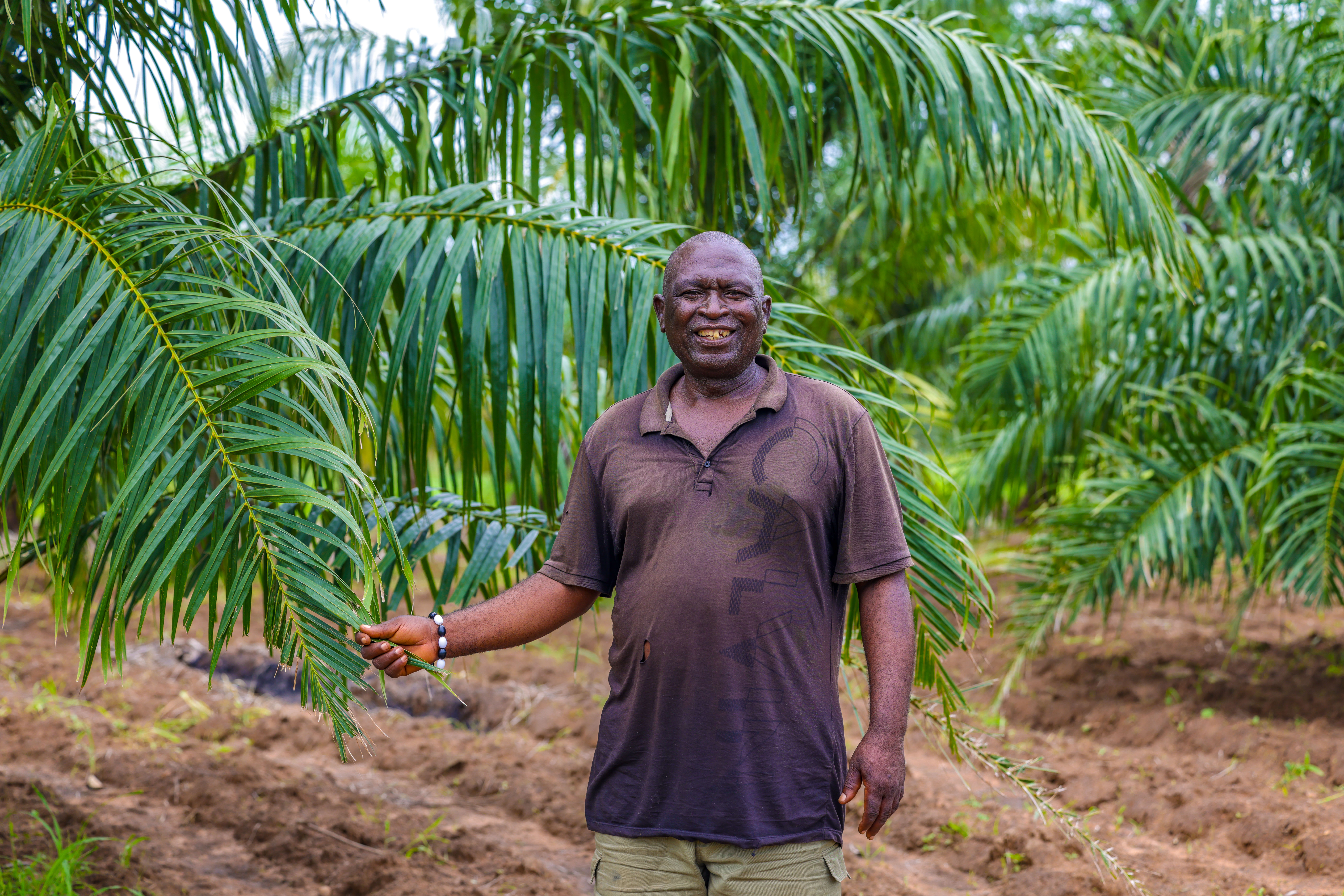
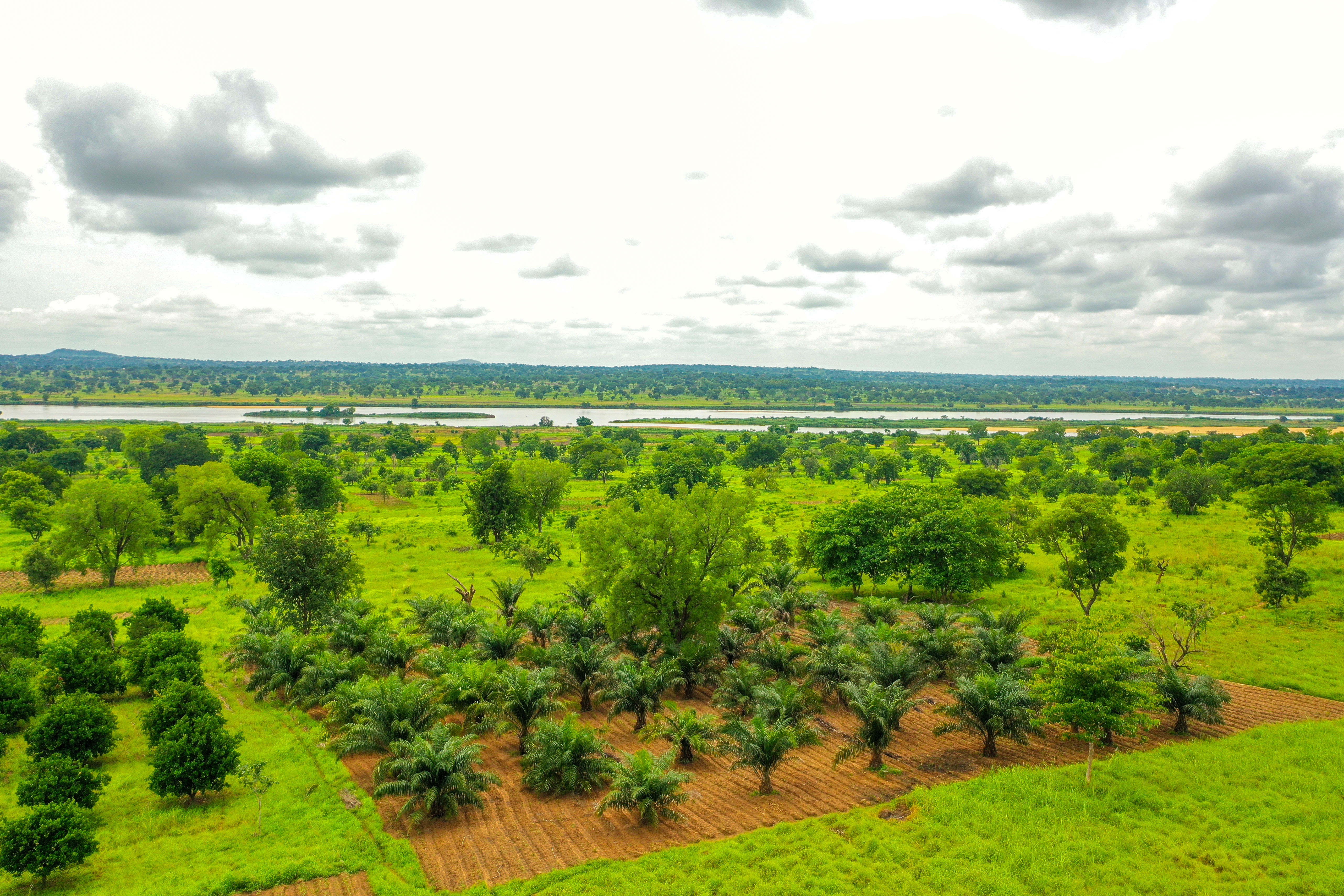
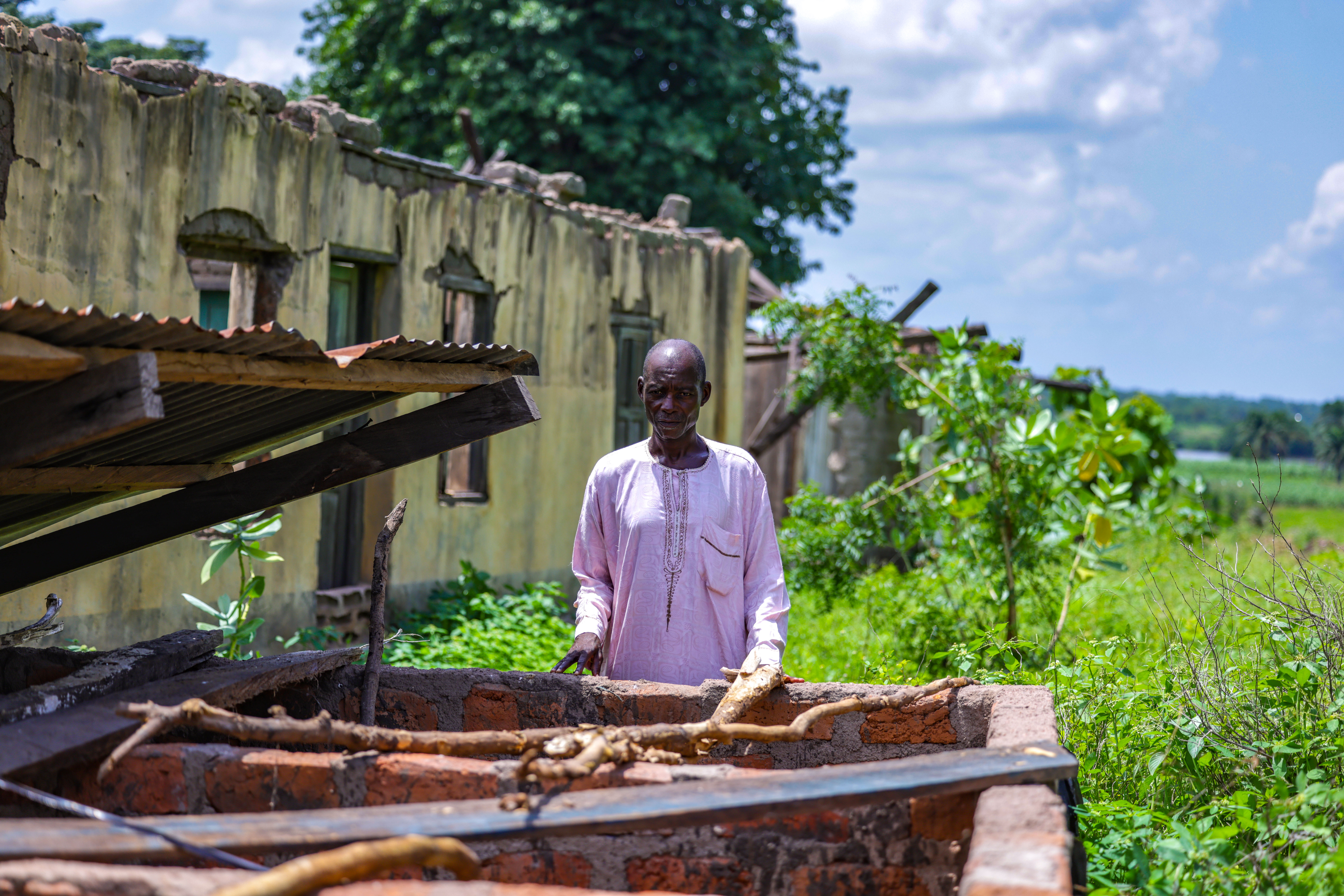
"We can now see the difference that trees are making to the landscape in terms of water flow control and retention," says Gber Upa, a farmer from Mbagir village. Gber was given seedlings such as oil palm, mangoes, and oranges which he planted around his farms and house. “I can now see that more trees reduce the impact of raindrops on bare soils and prevent soil particles from being carried away by wind.”
The goal of the project is to support reclamation of land and improve the livelihoods of people who rely on them. As a result, the project includes additional tasks such as soil and water conservation measures, improving food production sustainably.
Pests and diseases are a severe problem for farmers in Buruku and Obi communities. An increased incidence of pests and diseases in the last decade has negatively affected crop production, for example incidence of Fall Army worm in maize production.
Faced with these challenges, the Food security project took the initiative to develop and promote bio-pesticides formulation (ACTION 007) that required minimal mechanical equipment. Farmers are using bio-pesticides to control insect pest attack in crop production. They have reduced the use of harmful chemicals such as persistent inorganic pollutants in crop cultivation.
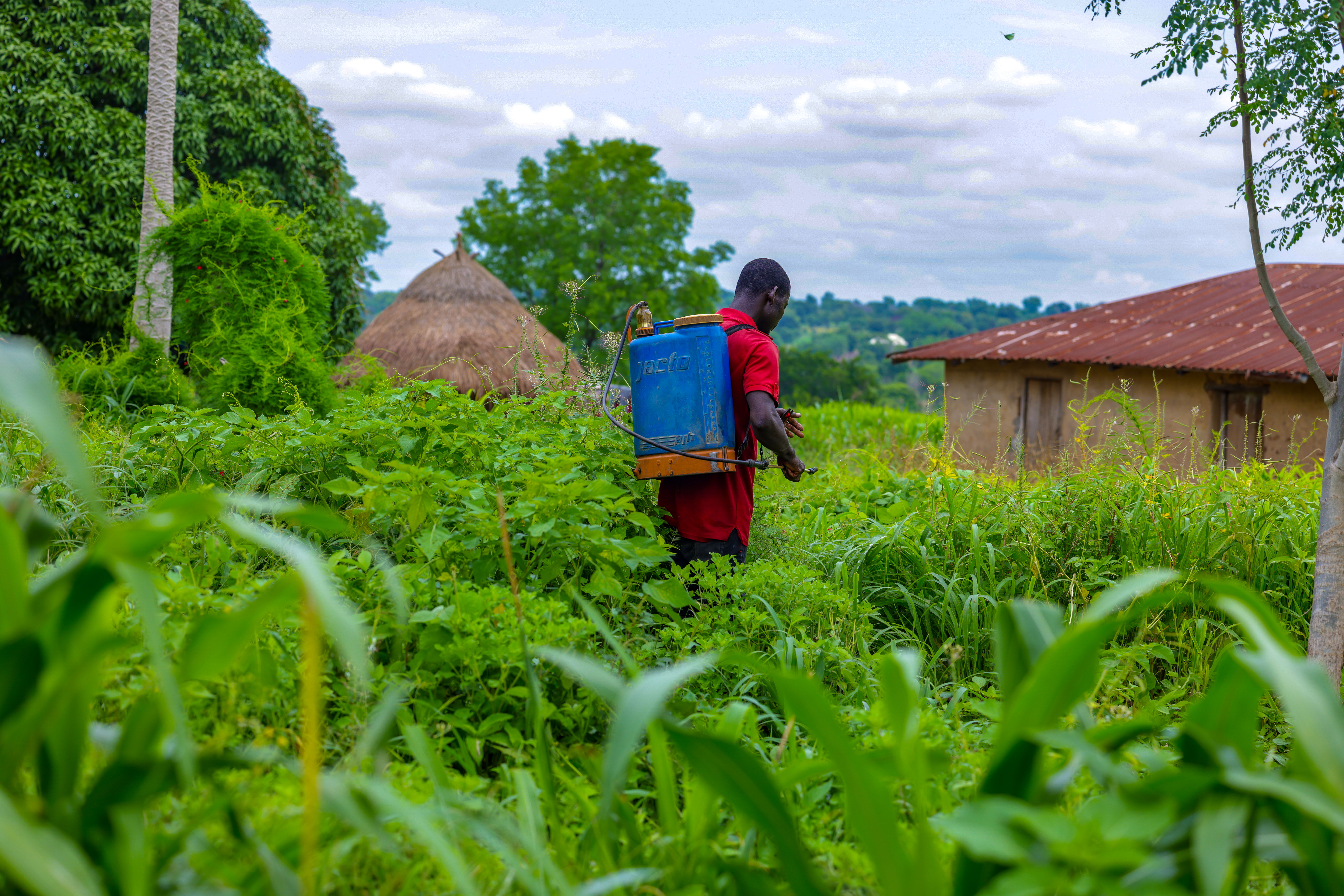
The UNDP-GEF partnership has built localized networks of Extension Agents (EAs), who have been trained in climate-smart agriculture and good agricultural practices and techniques. These EAs now deliver training and extension services to farmers. With a farming cooperative group, the EAs identify strong lead farmers and train them in the best farming practices. The lead farmers then become the primary trainers for farmers in their cooperatives and communities.
“While we work to provide additional support, both short- and long-term, to the projects at various levels of operation, we are thankful for the continued collaboration and support from UNDP-GEF,” said Comfort Anum, EA for Mbajor community.
"Farmers are tripling their yields and may grow even more with continuing training in good agricultural practices.” says Owole, EA for Igore Ito community. "There's a lot more to learn about timely land preparation, planting, fertilizer use, spacing, weed control, and pest and disease control," says Simeon Mkohol, EA for Mbagir community.

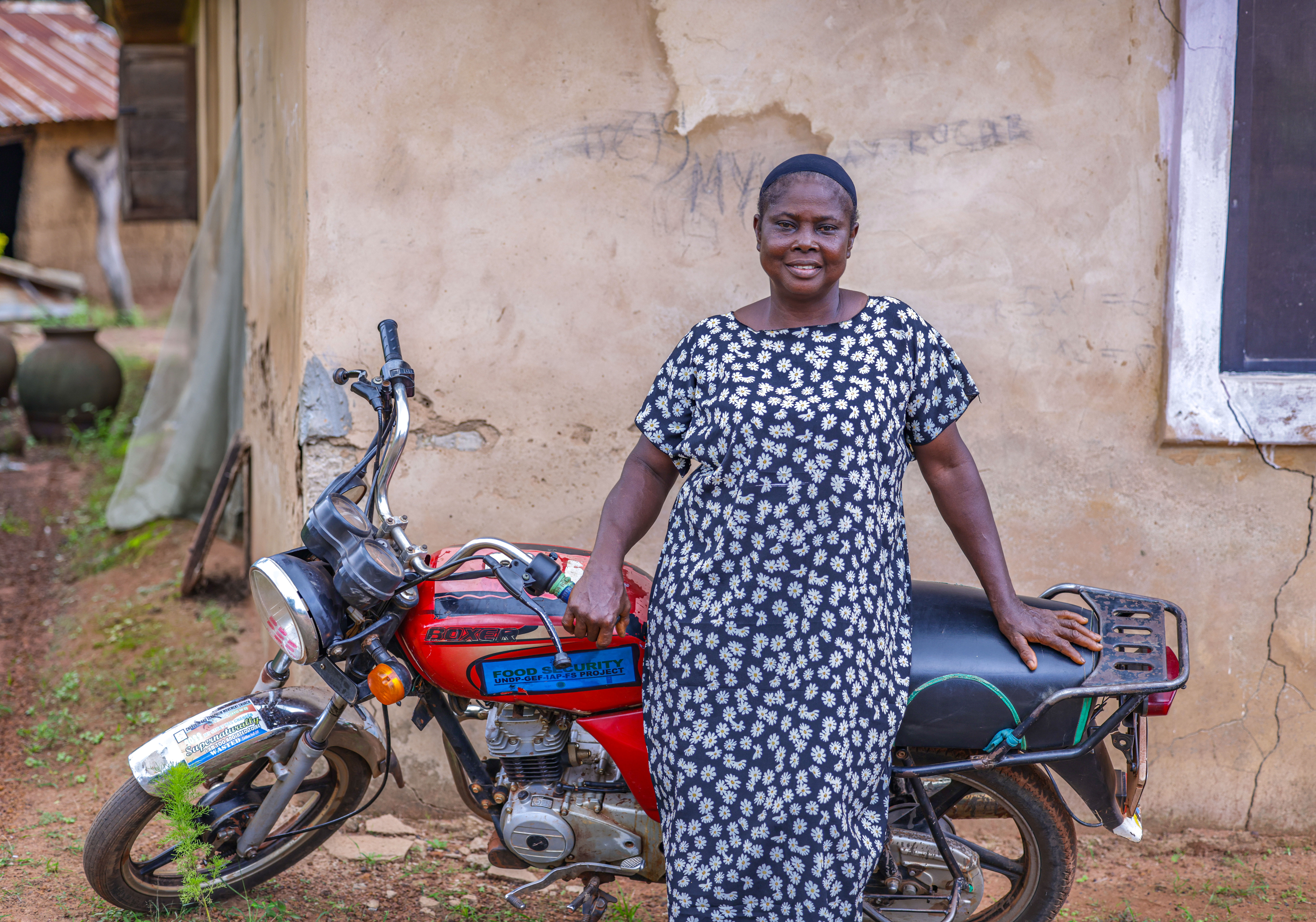
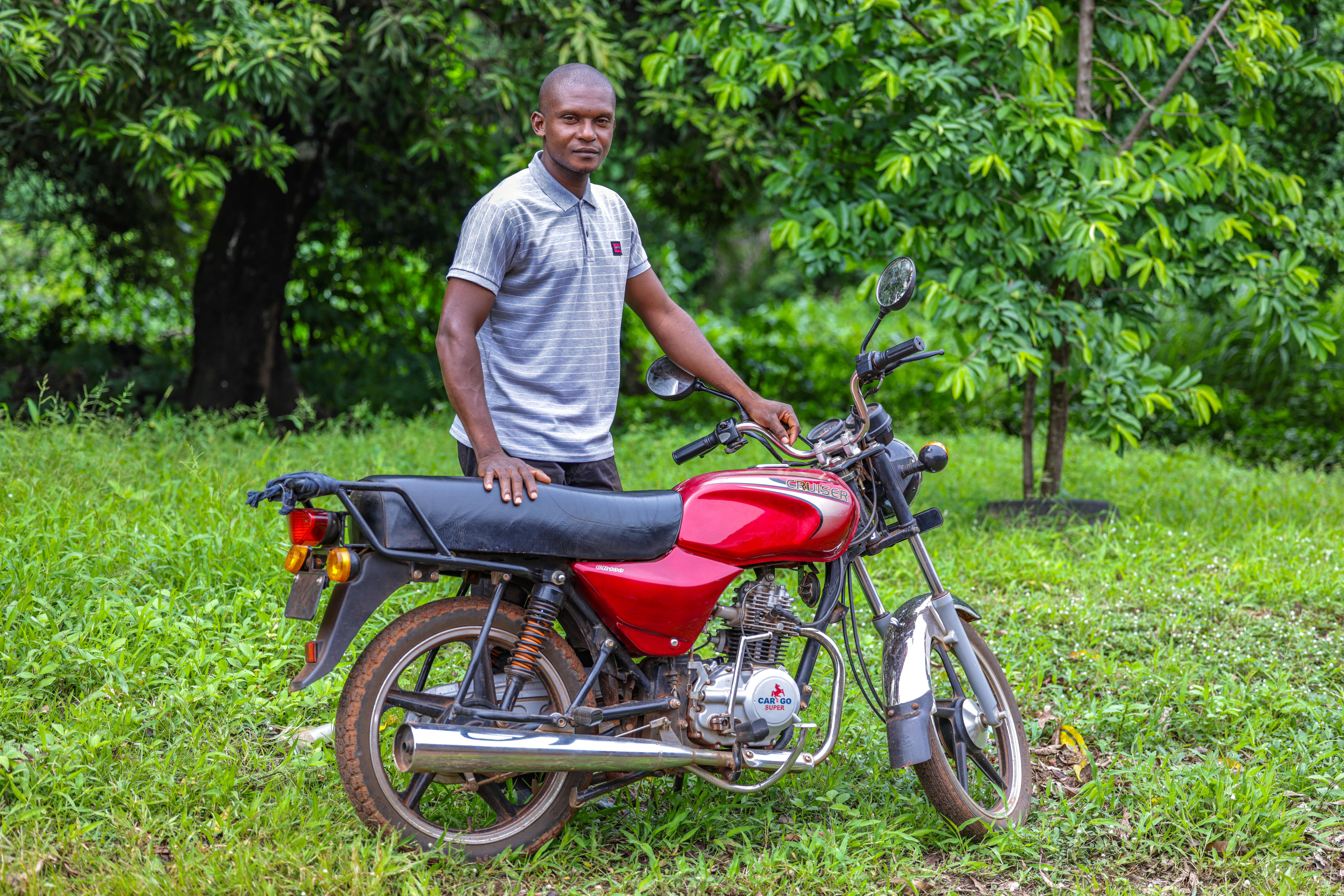
UNDP in collaboration with GEF and FMARD are working to foster sustainability and resilience for food security, through the promotion of diversified, climate-resilient agricultural practices. The project focuses on harnessing the sustainable use and management of natural resources for market-led economic growth in the agricultural sector.
Story and photos by UNDP Nigeria/Rejoice Emmanuel. Story edited by Ngele Ali.
Subscribe to our monthly newsletter to receive updates on stories directly from the field across all our projects, upcoming events, new resources, and more.